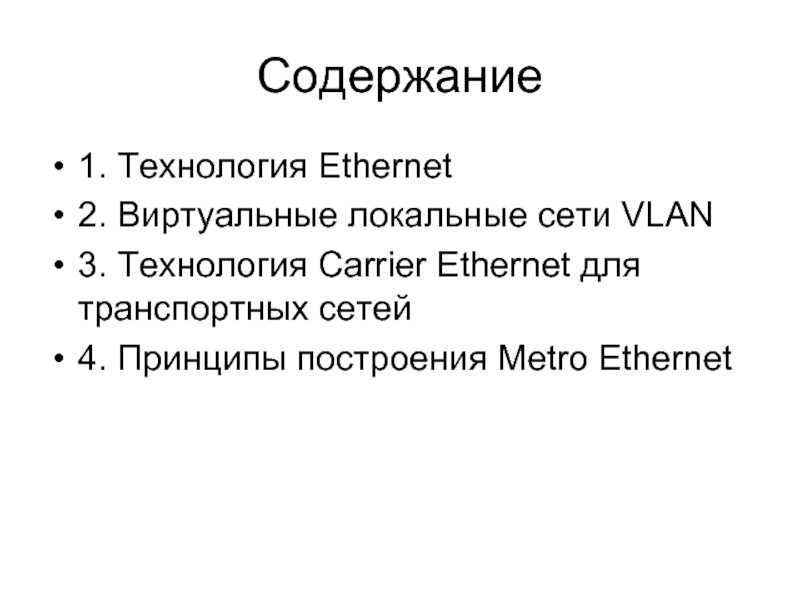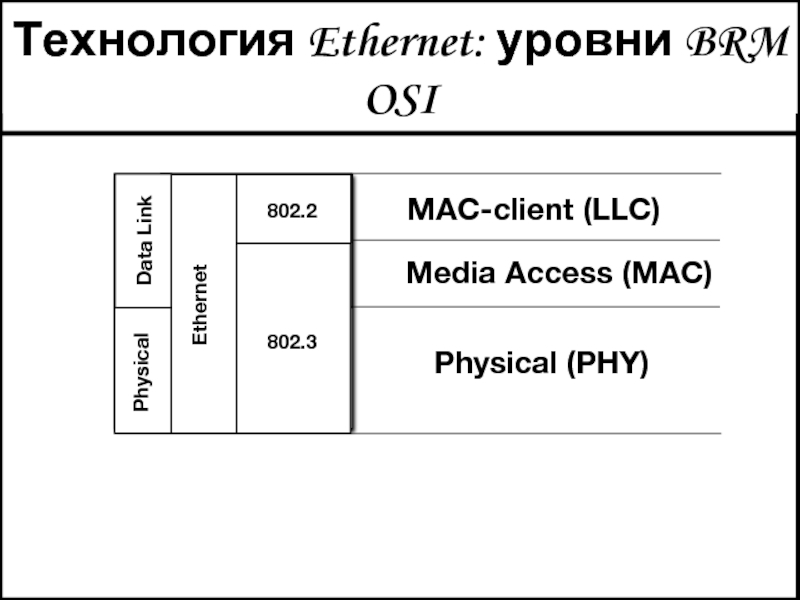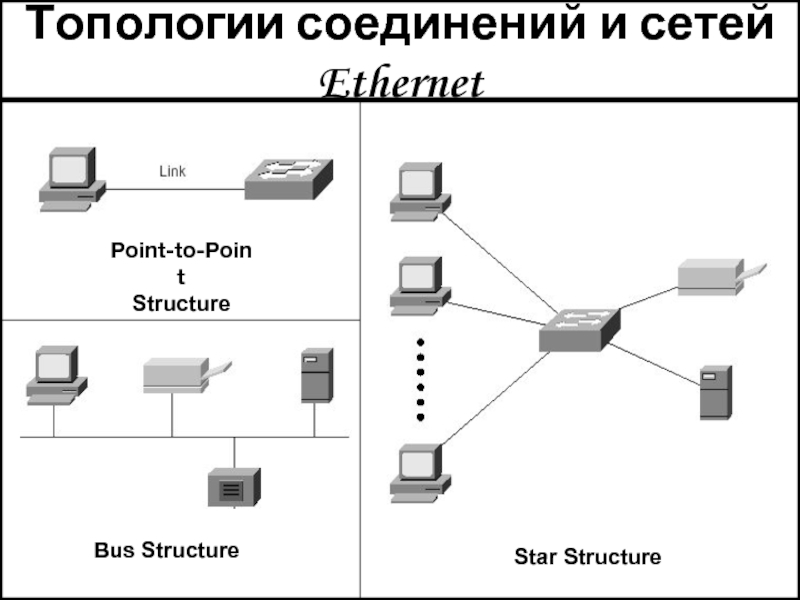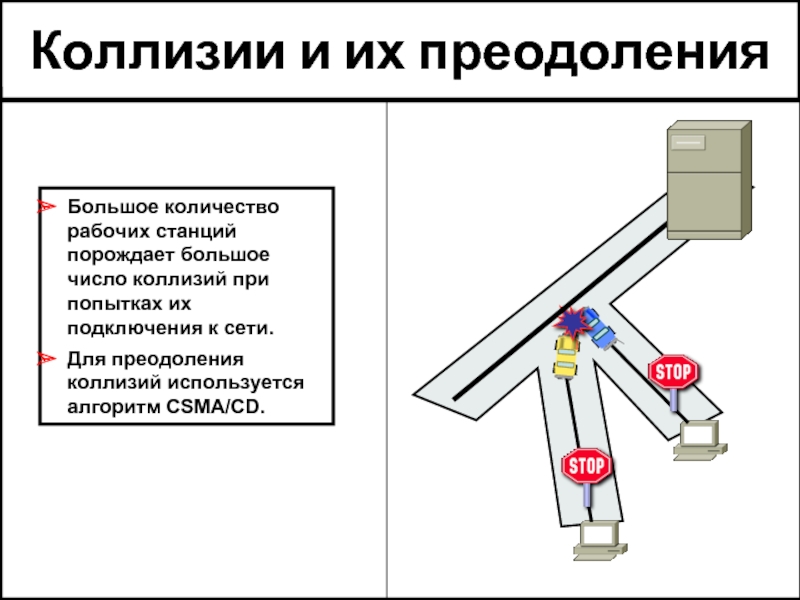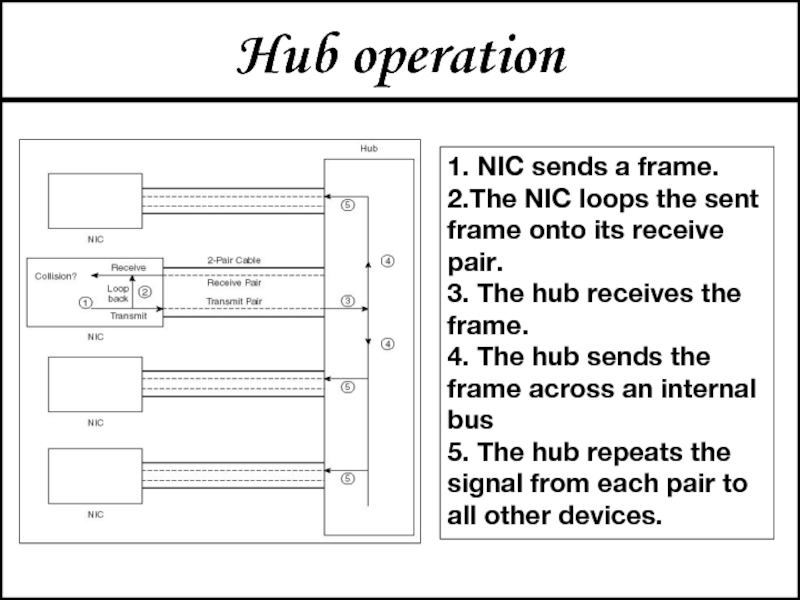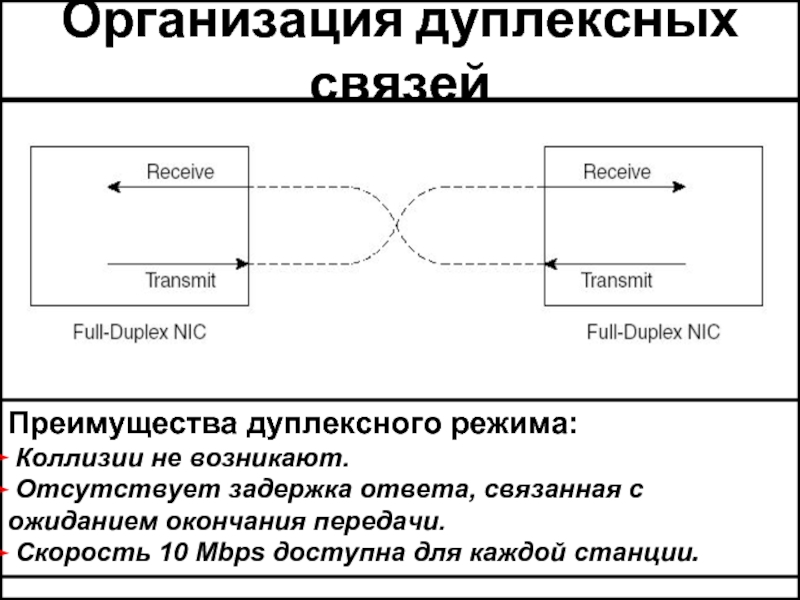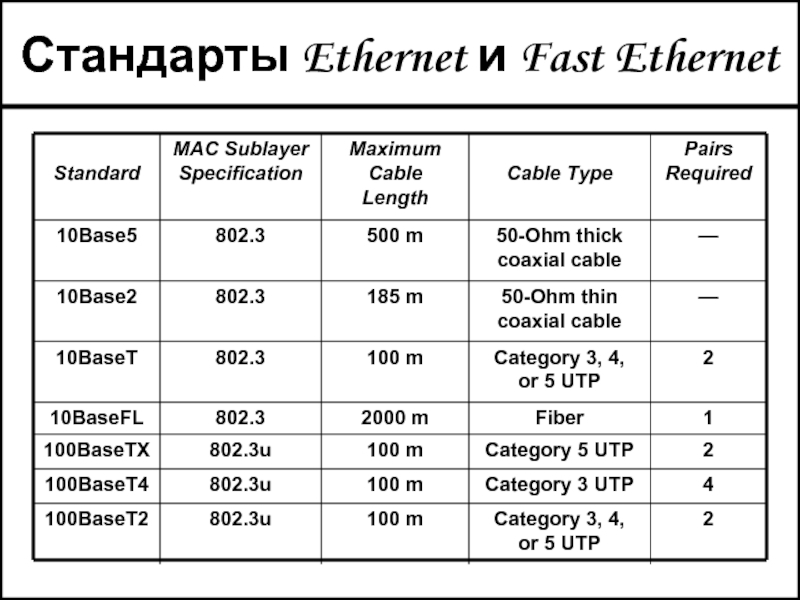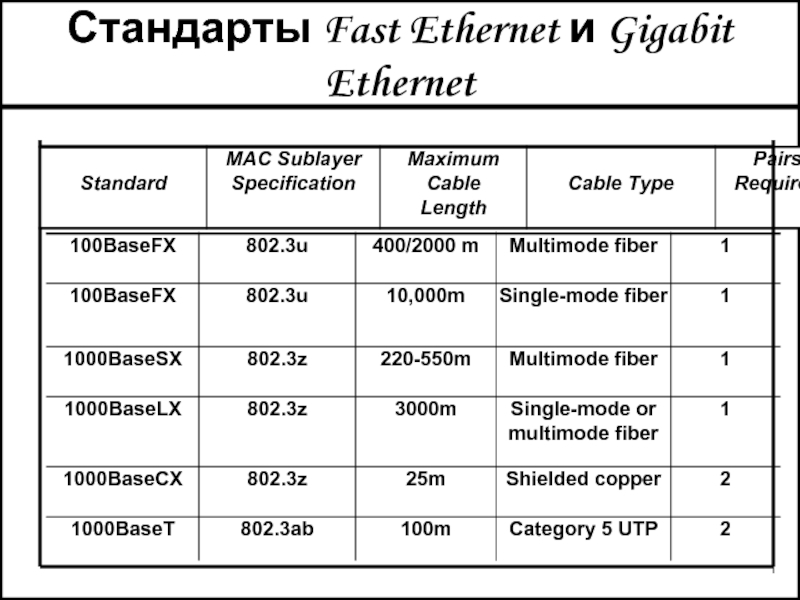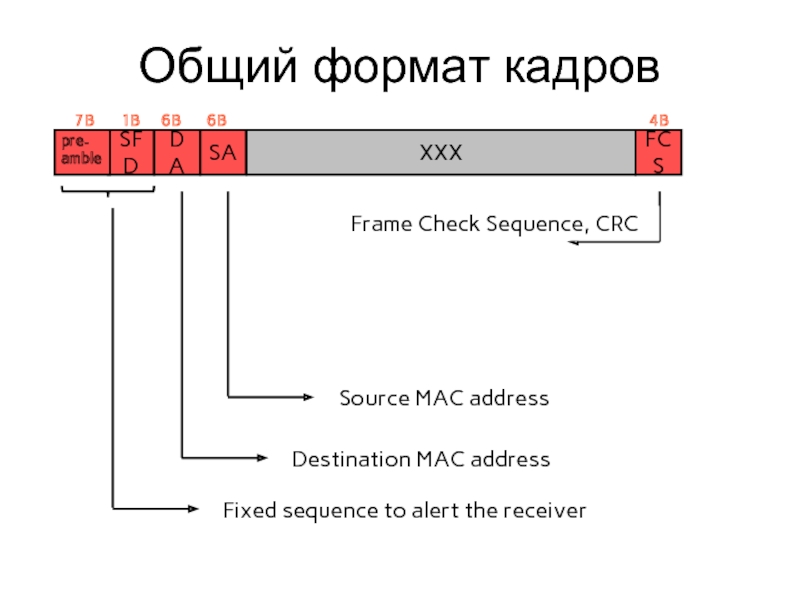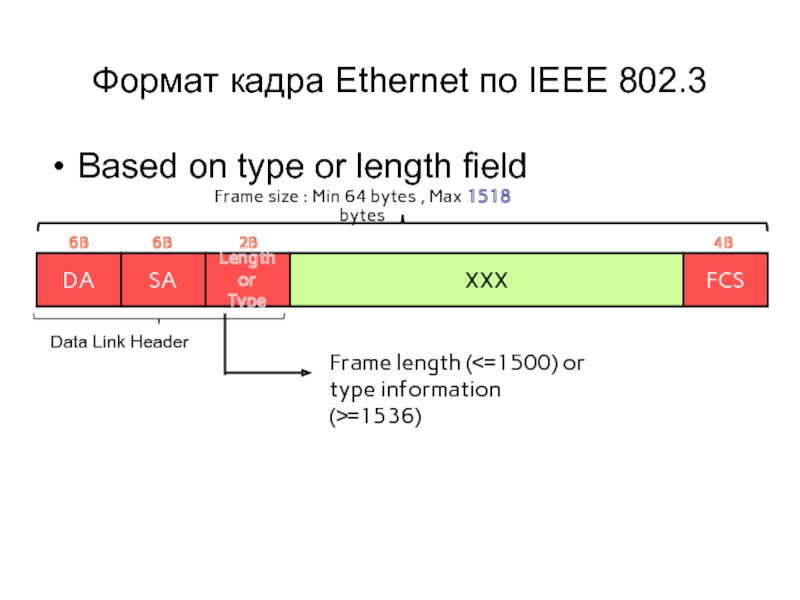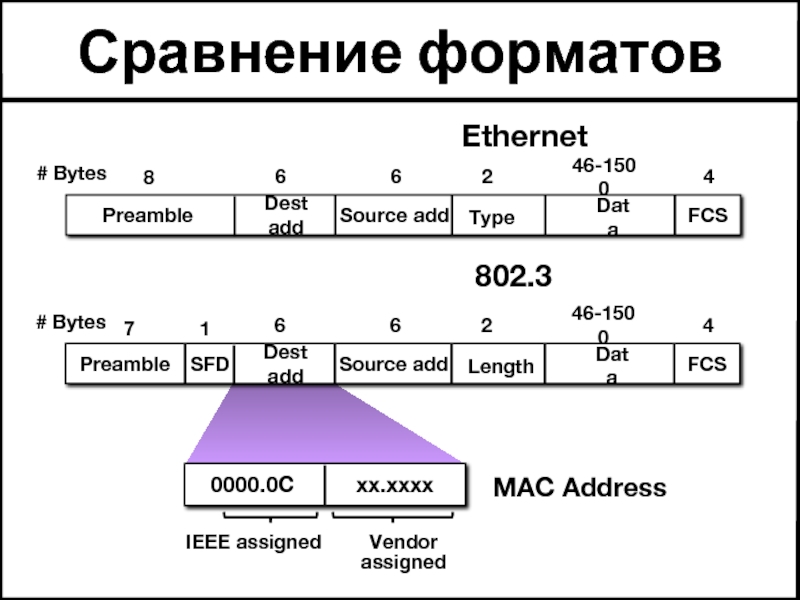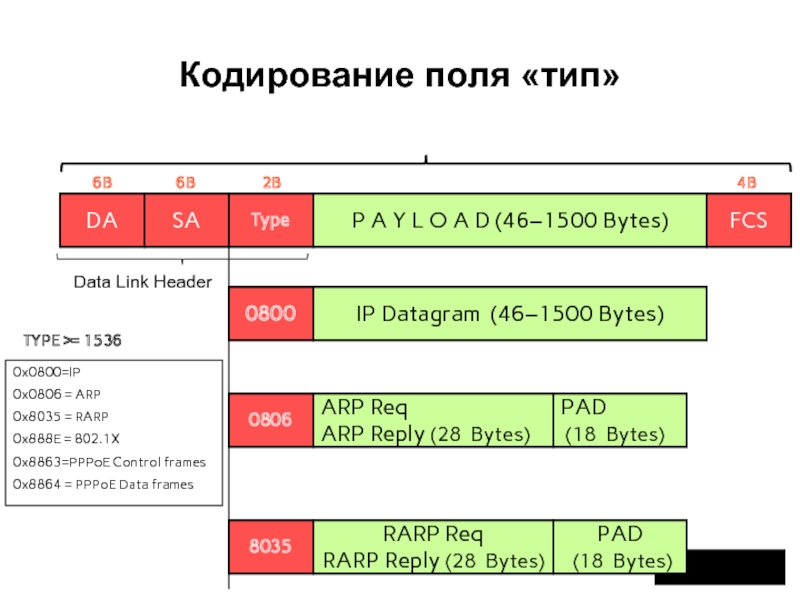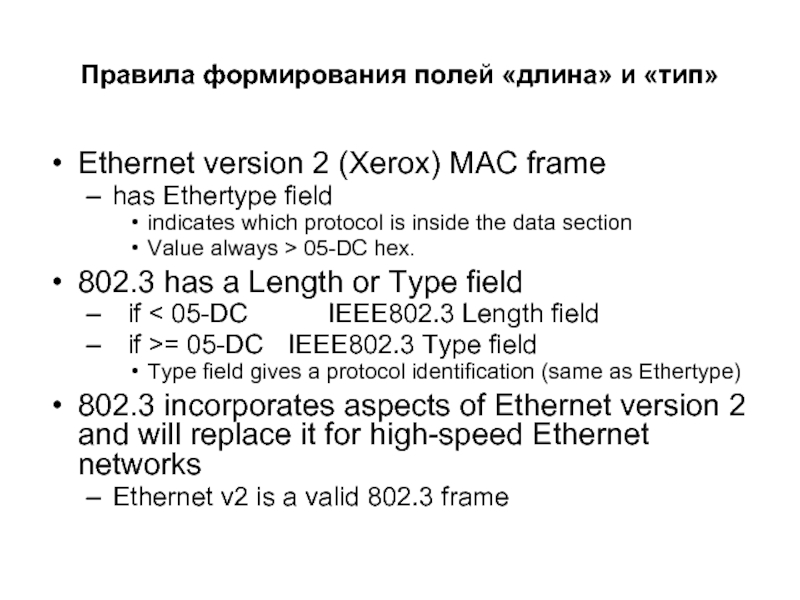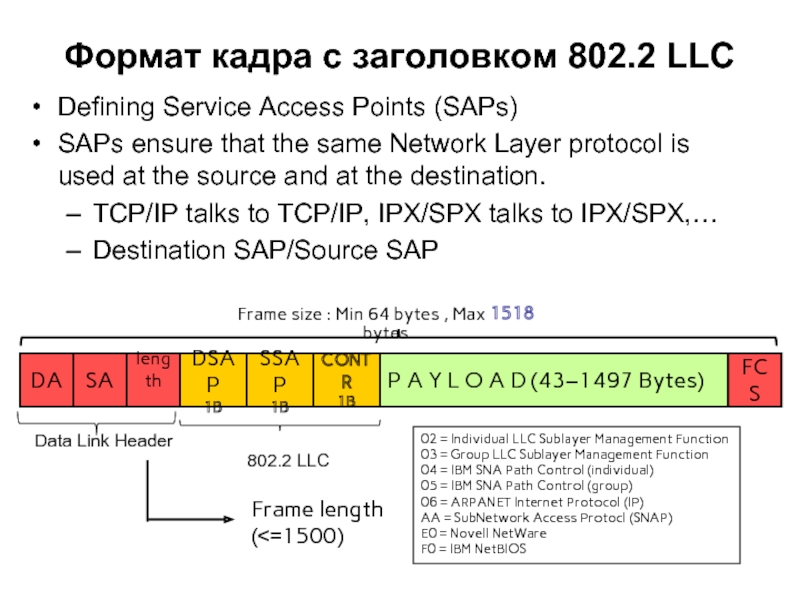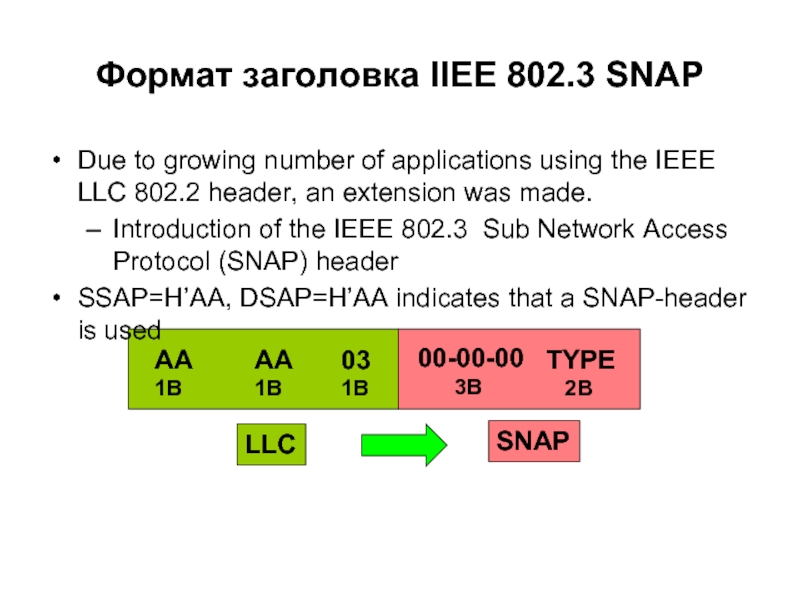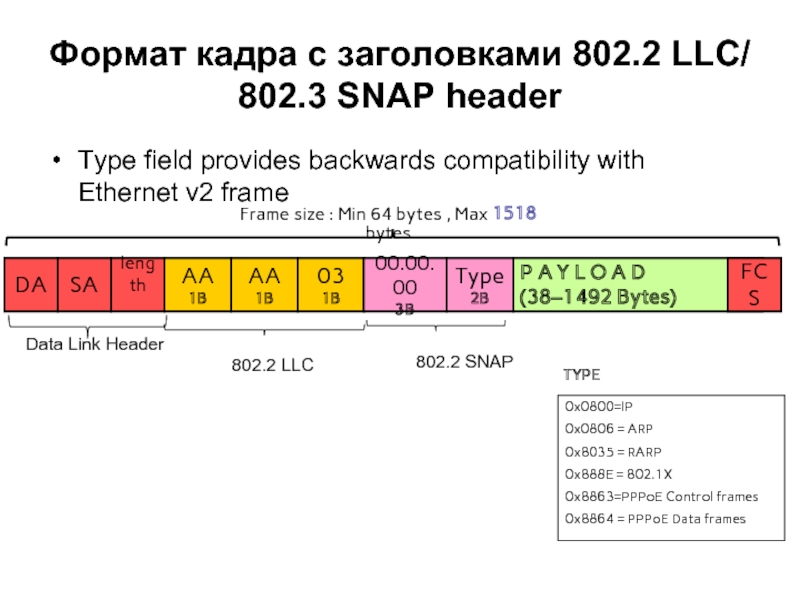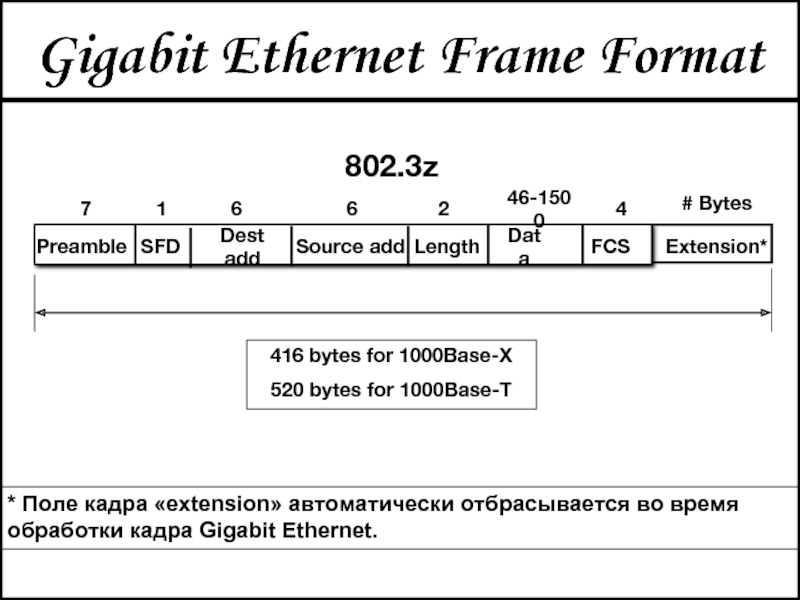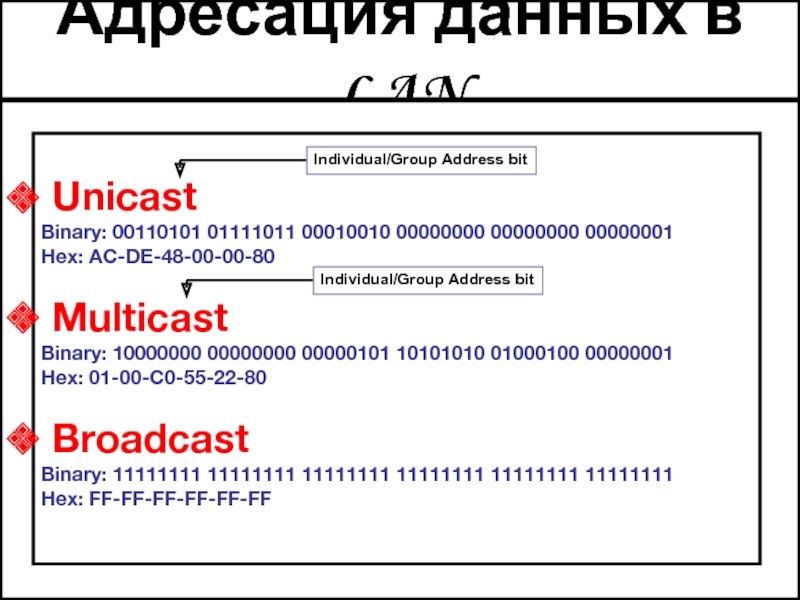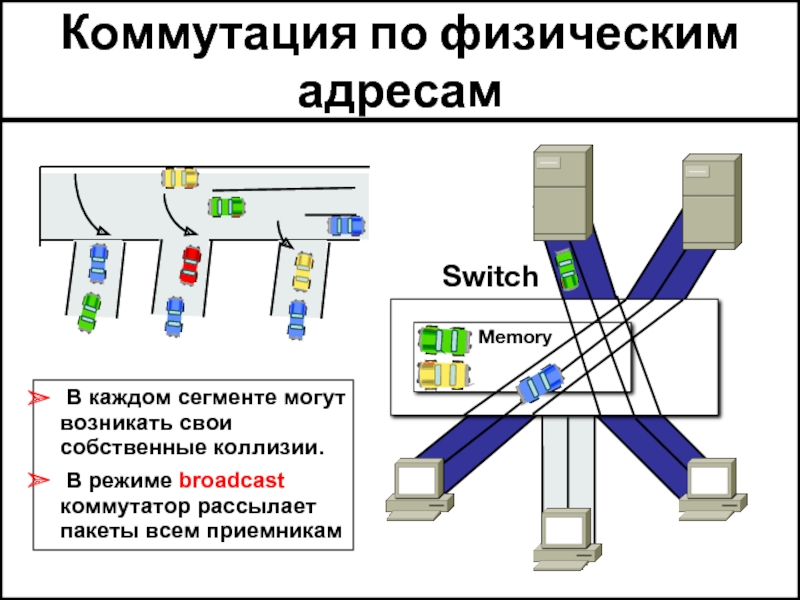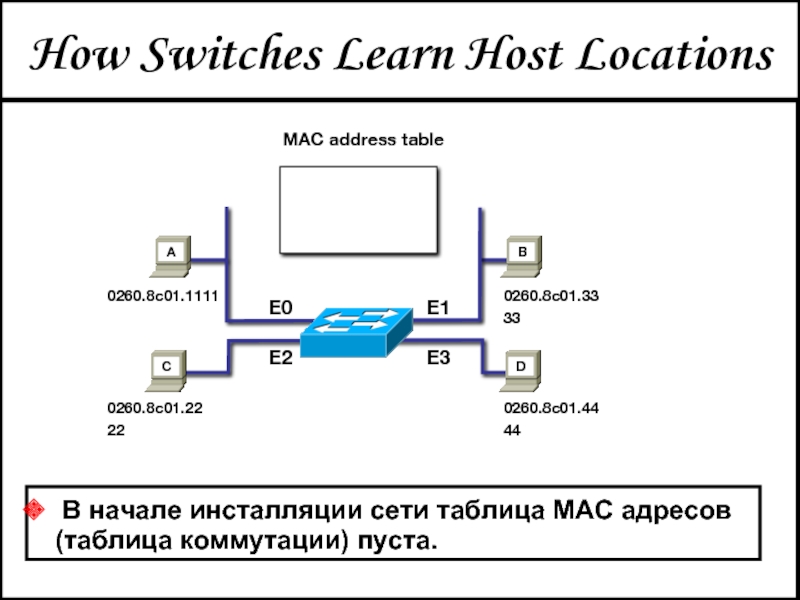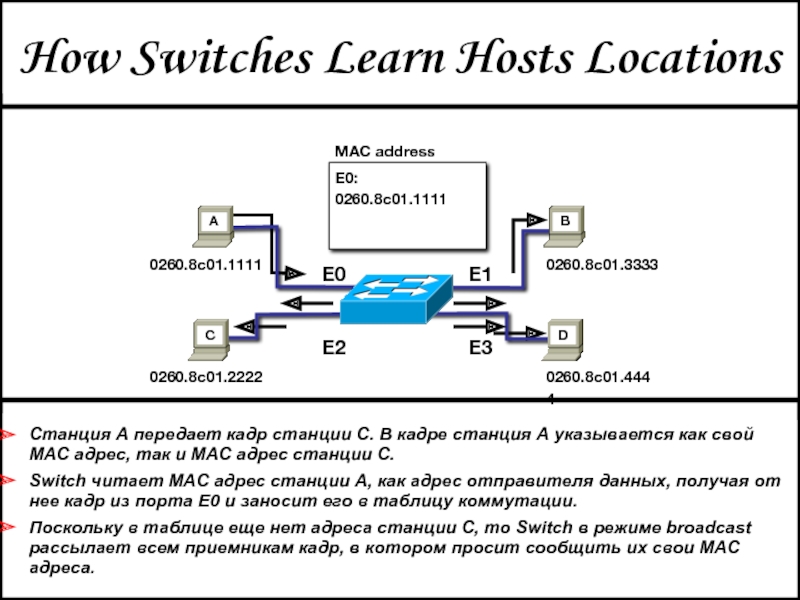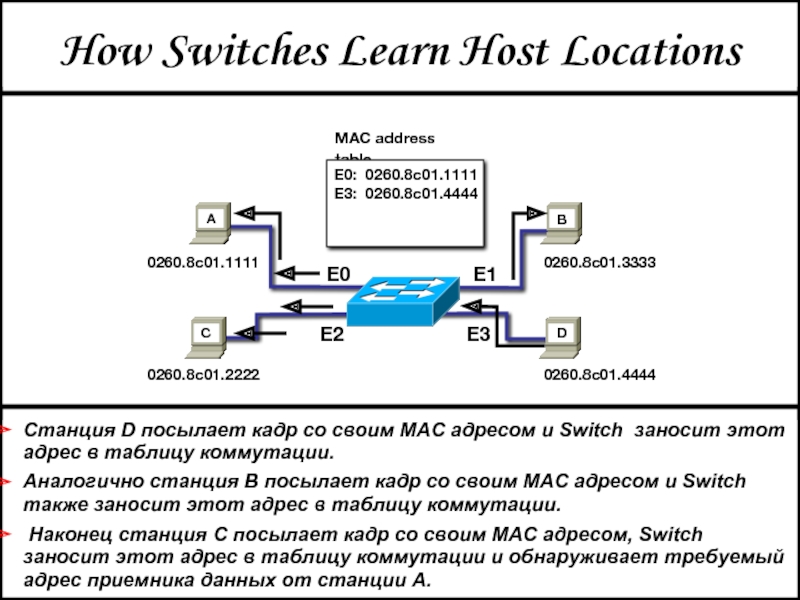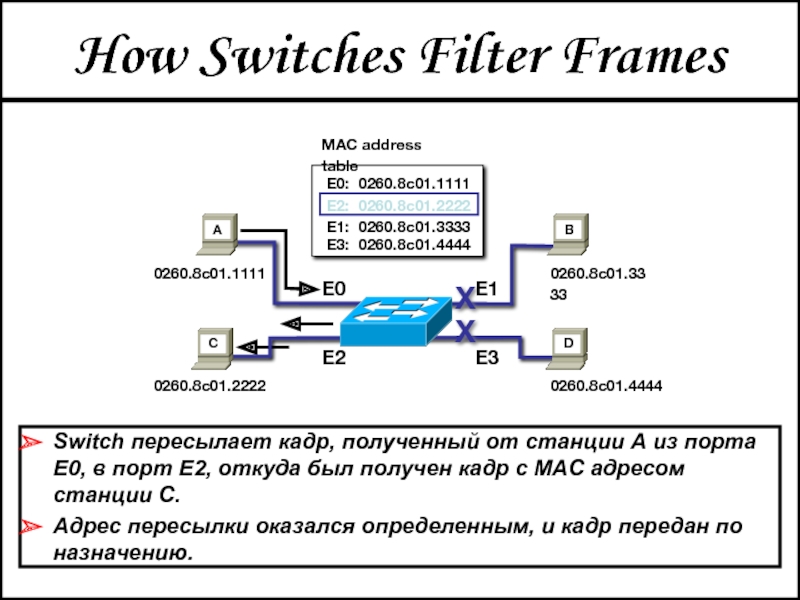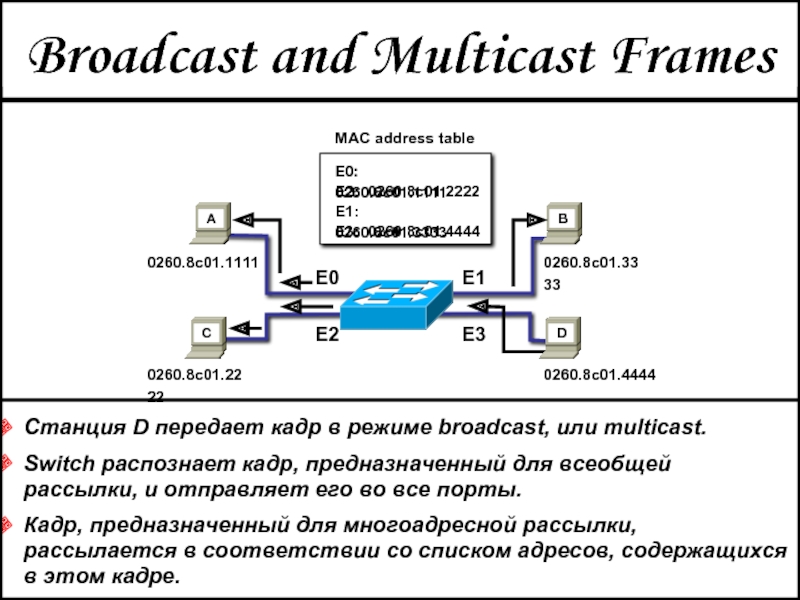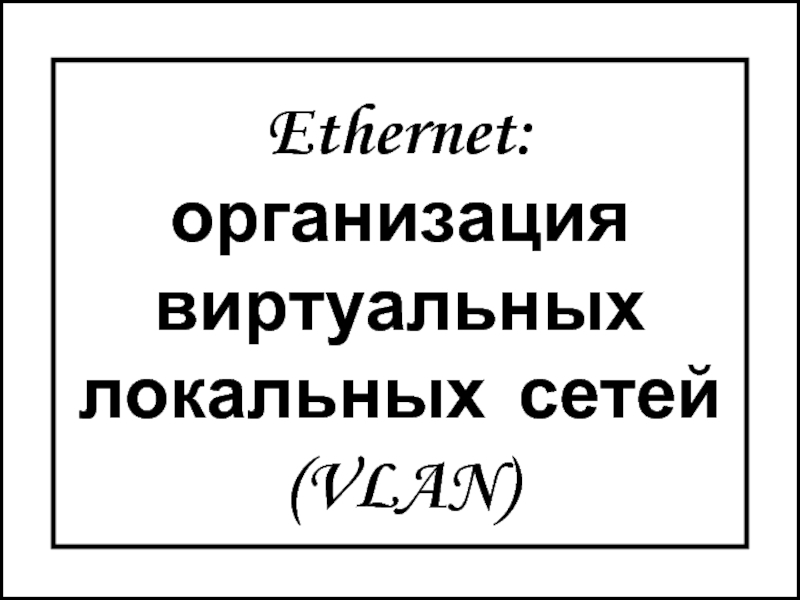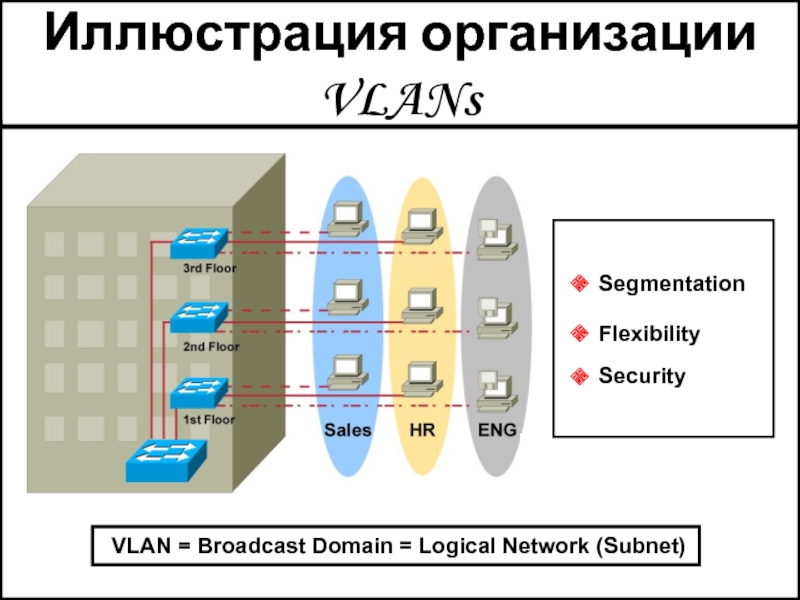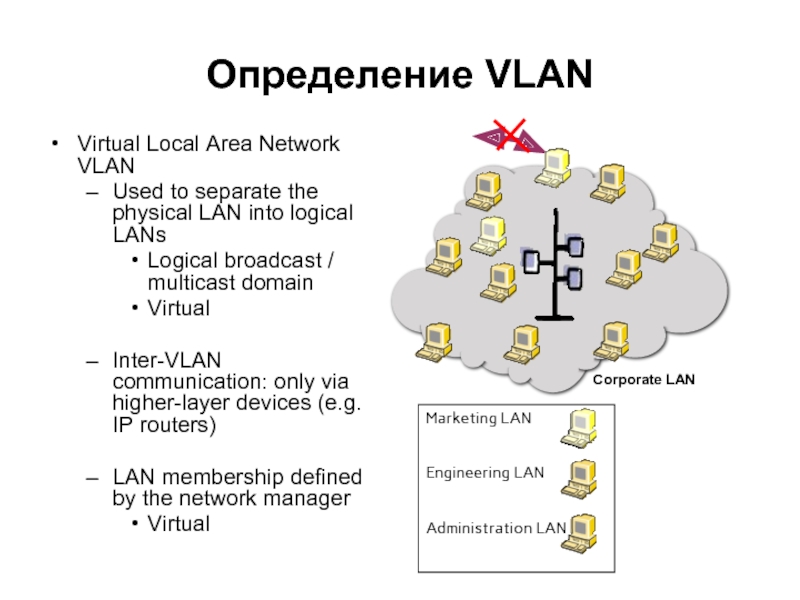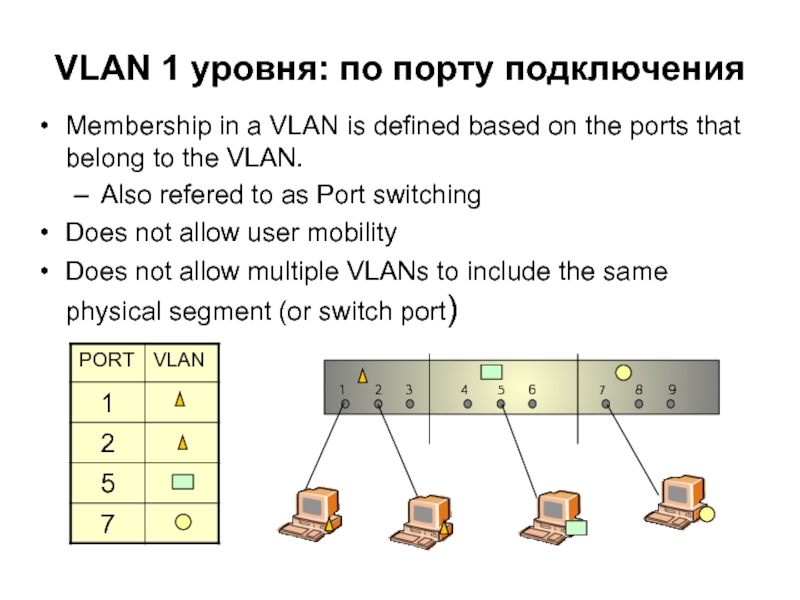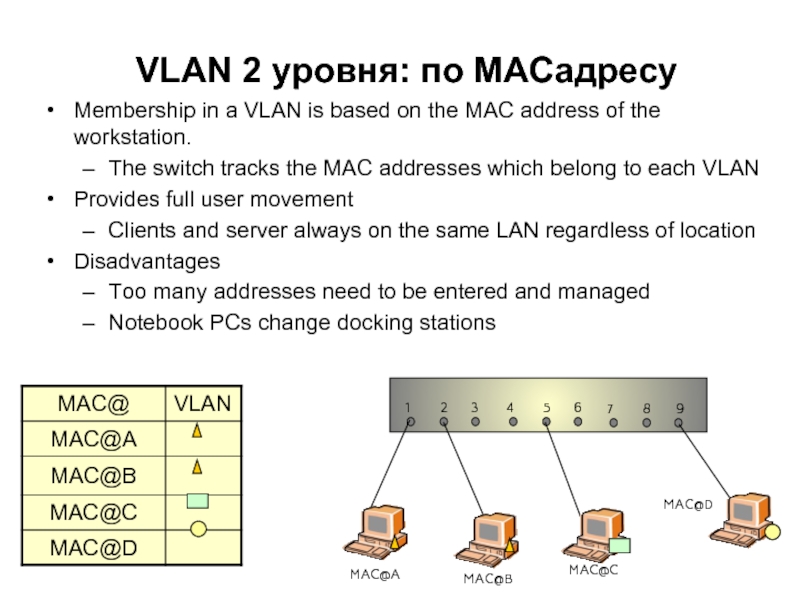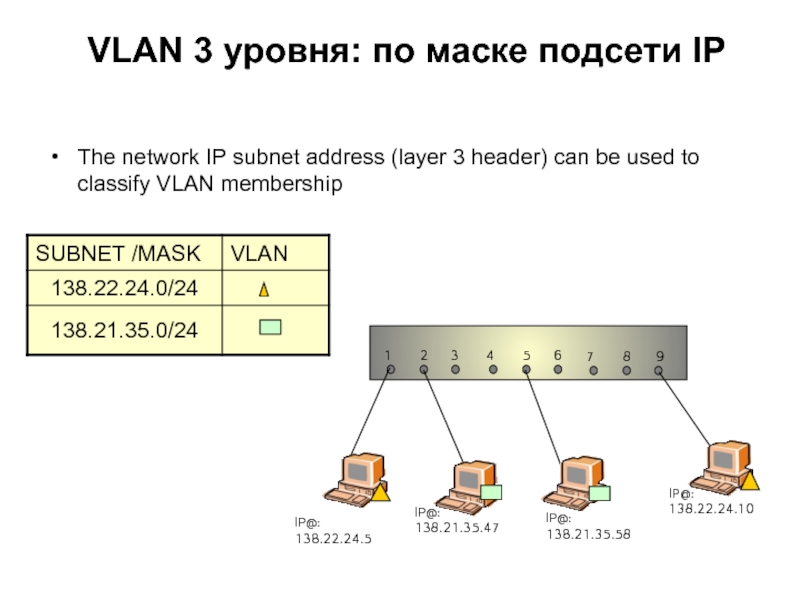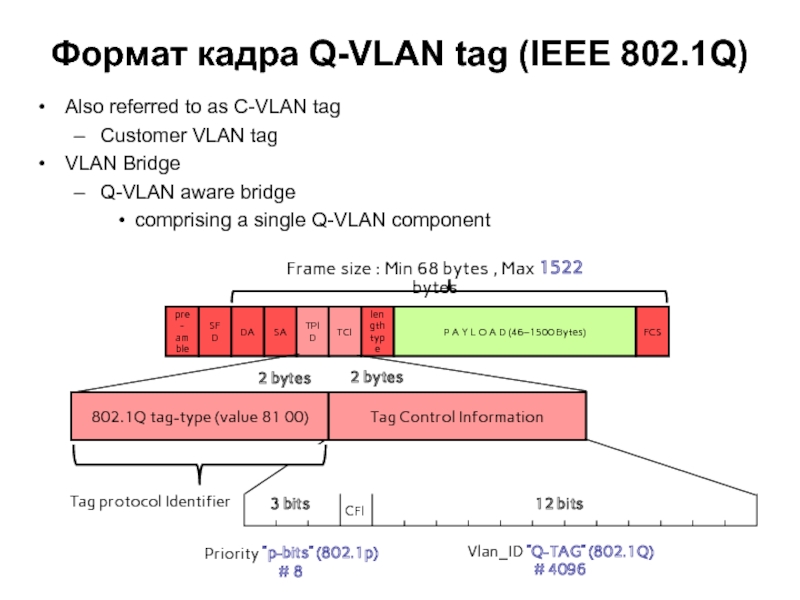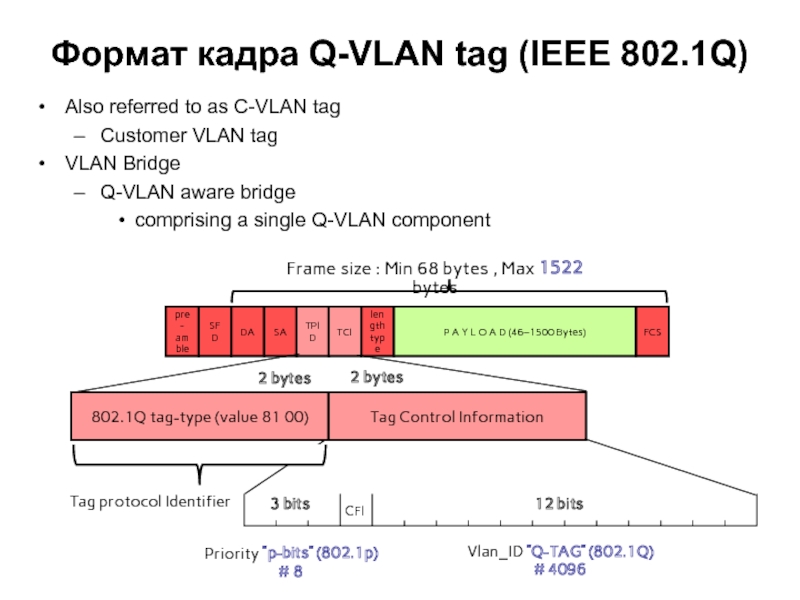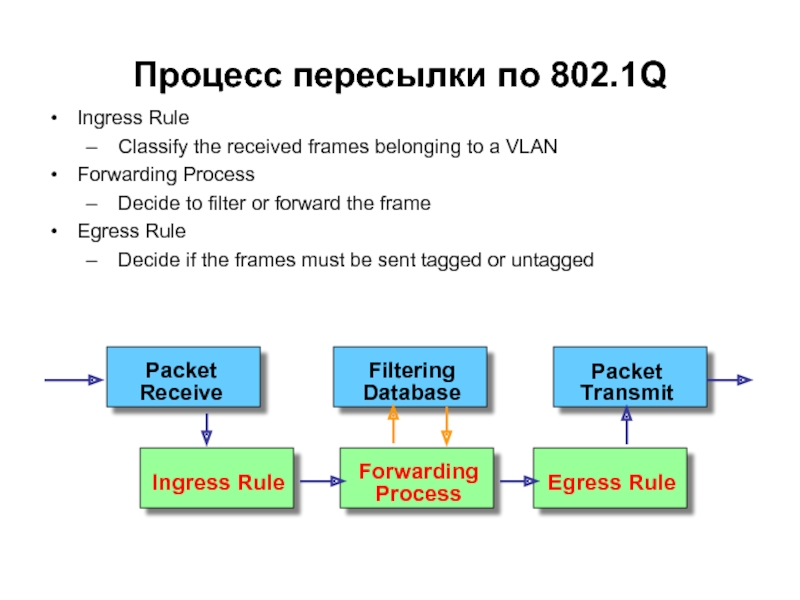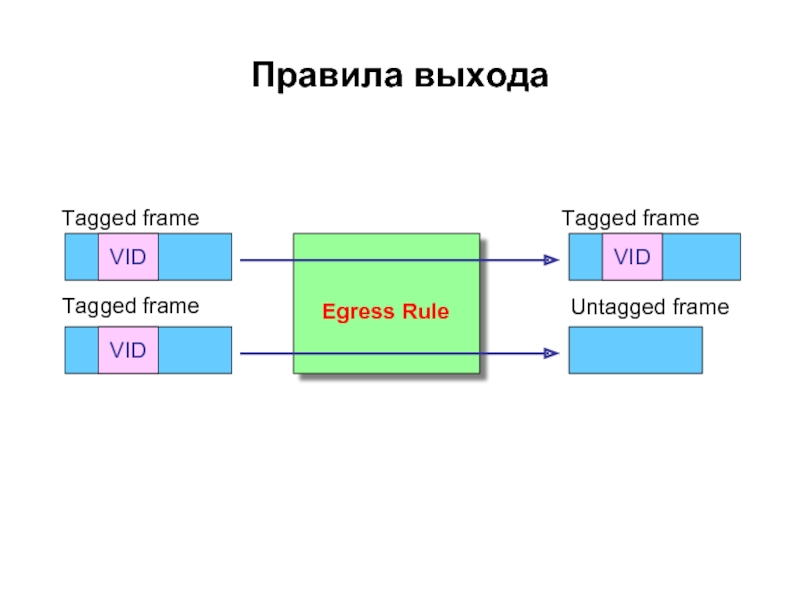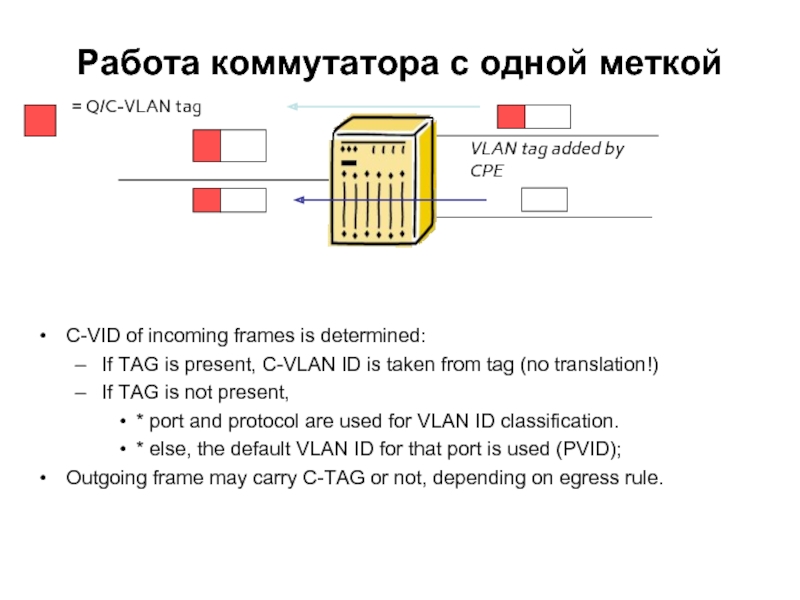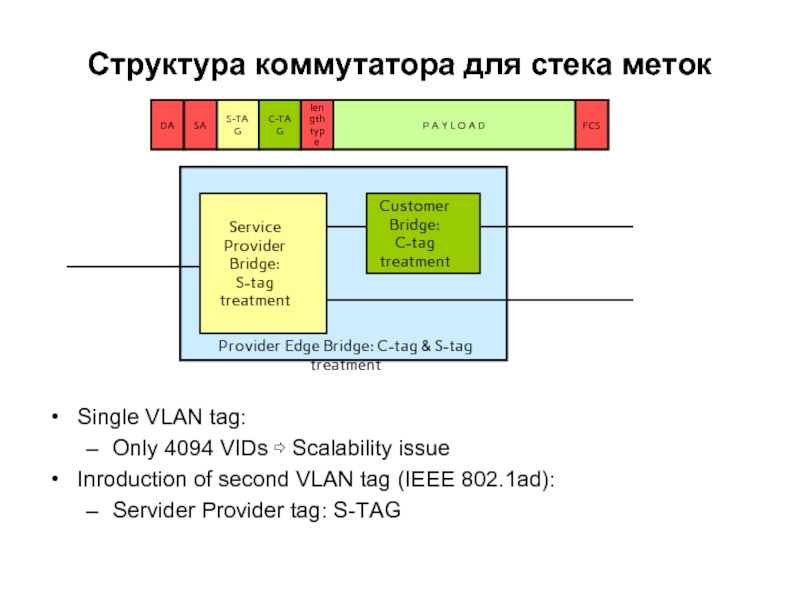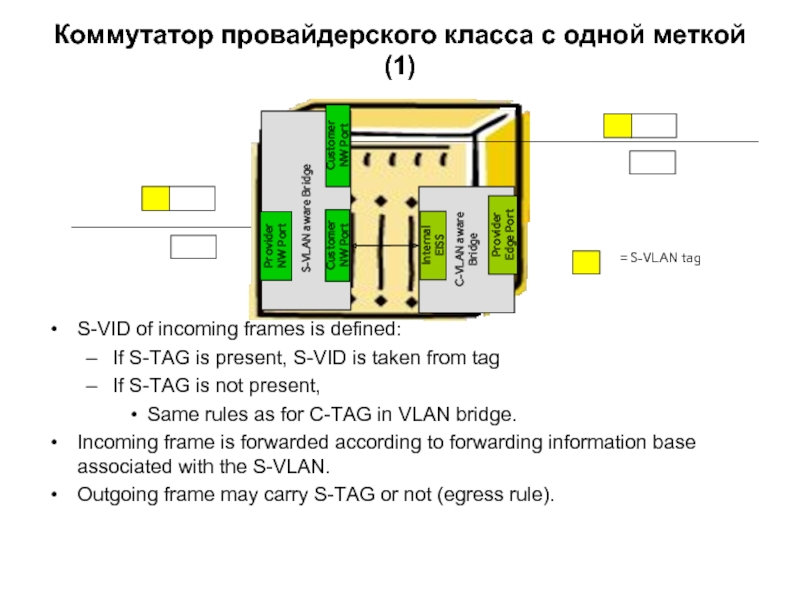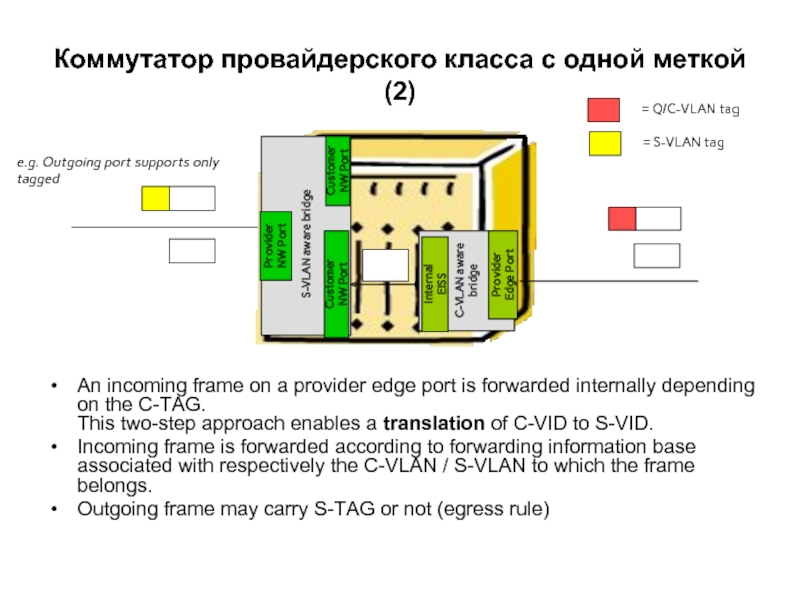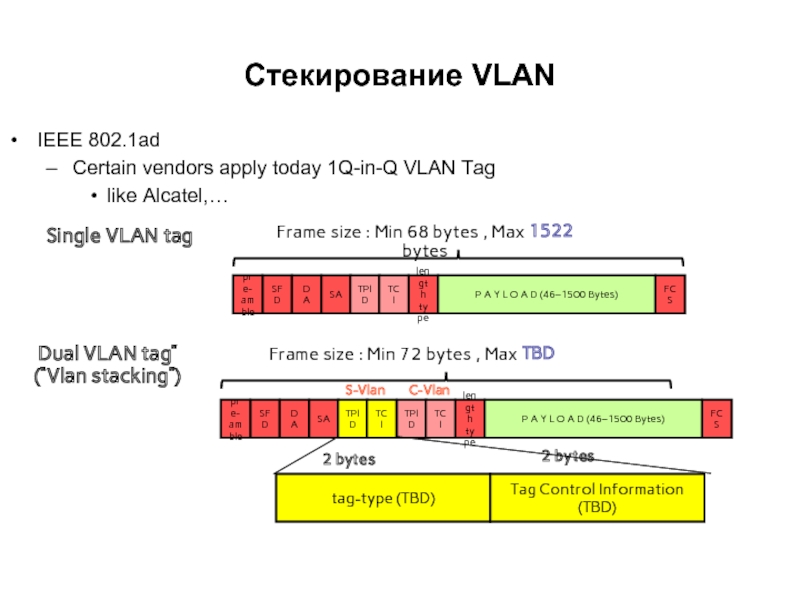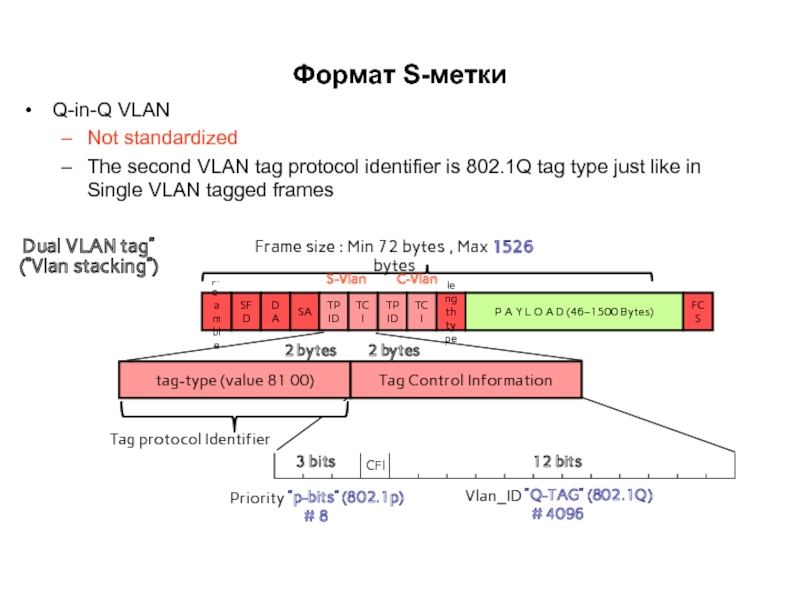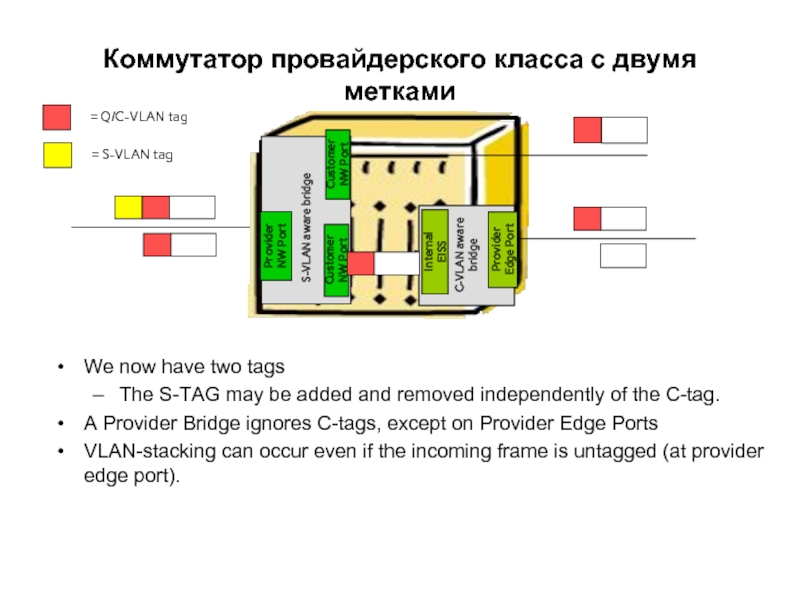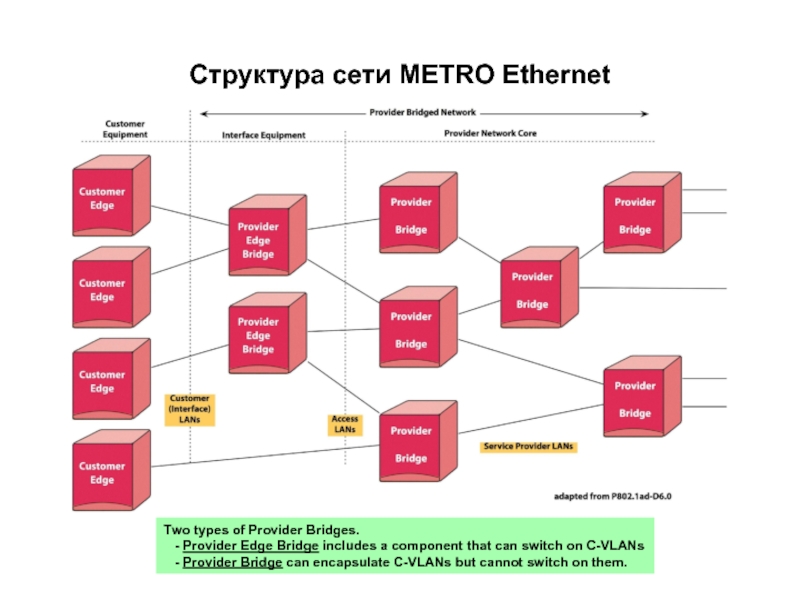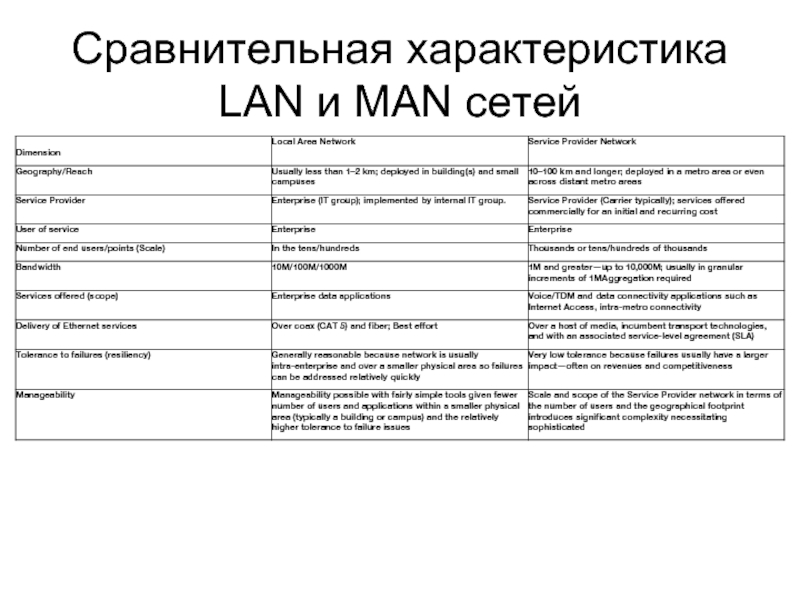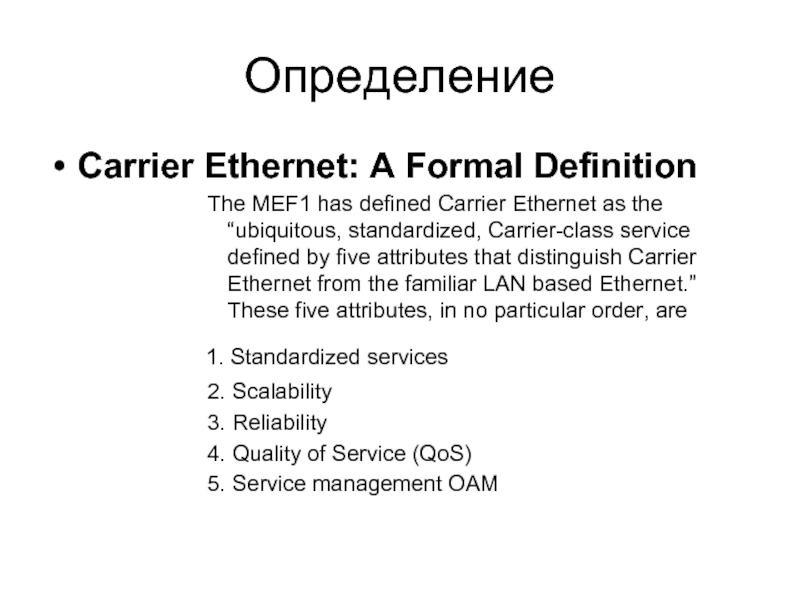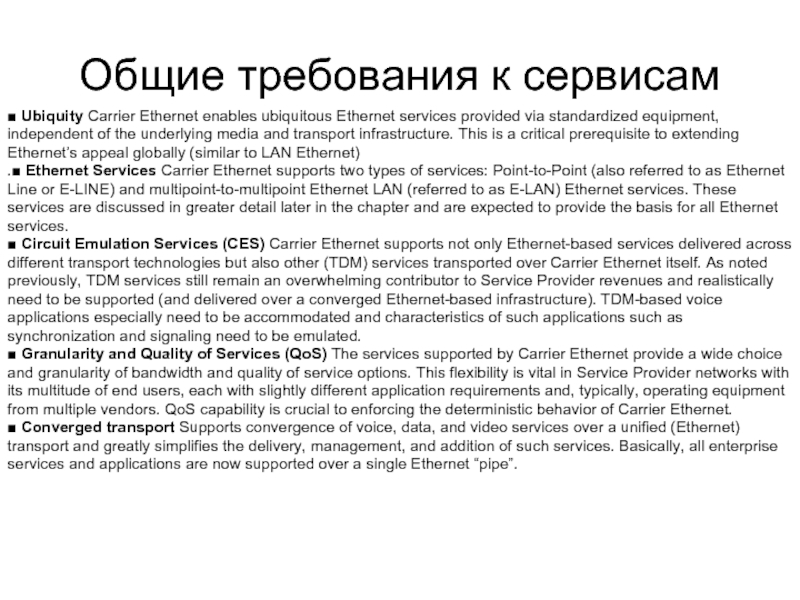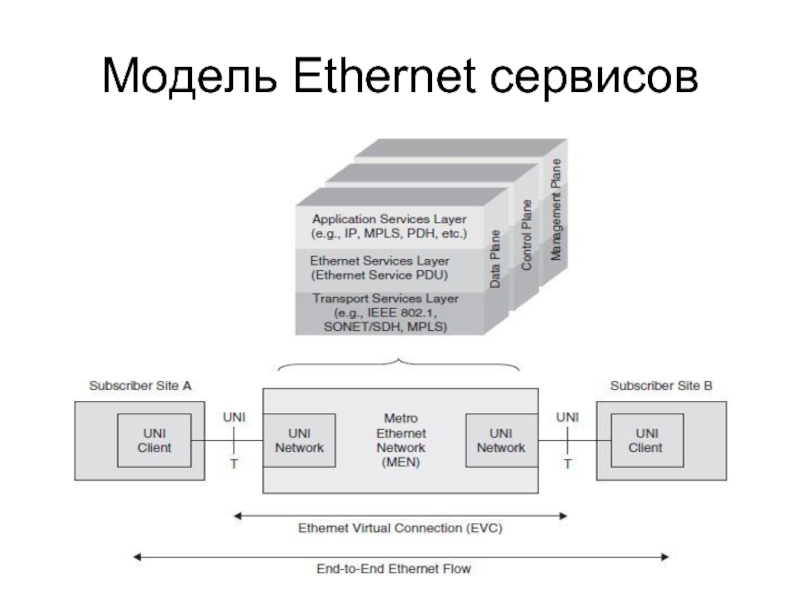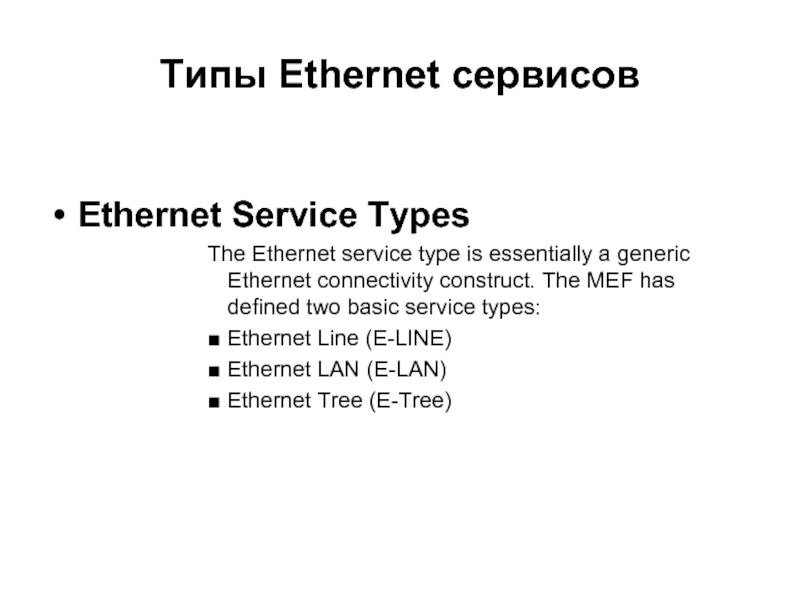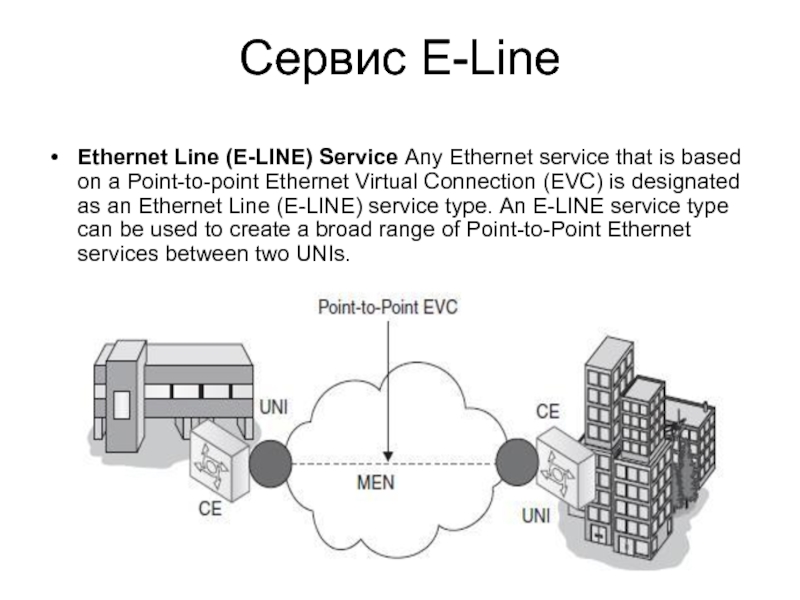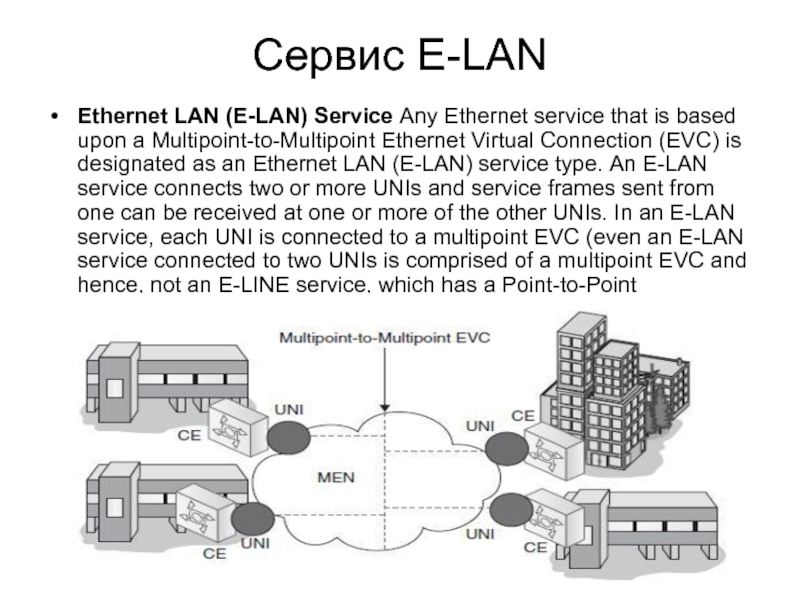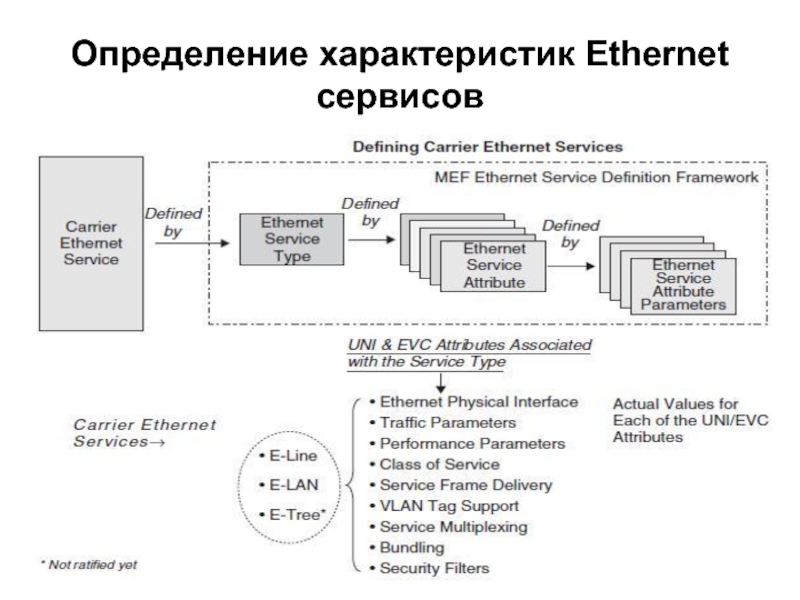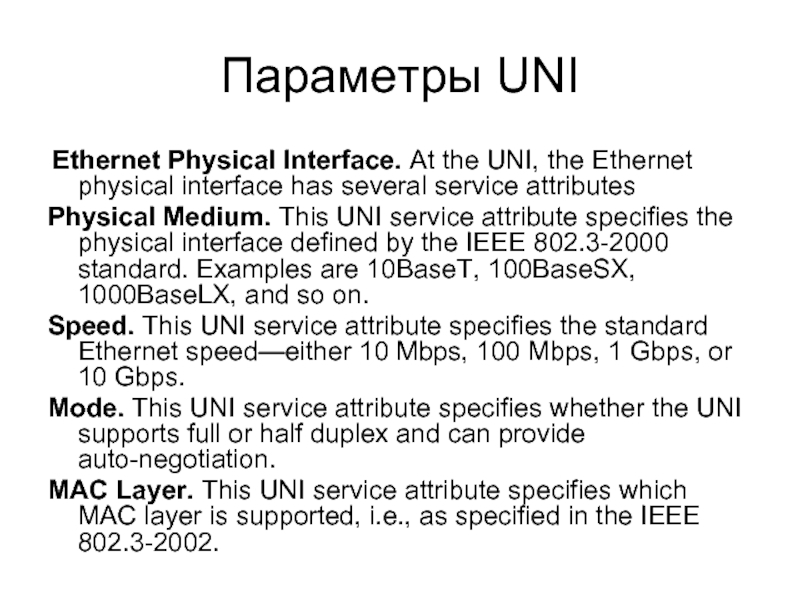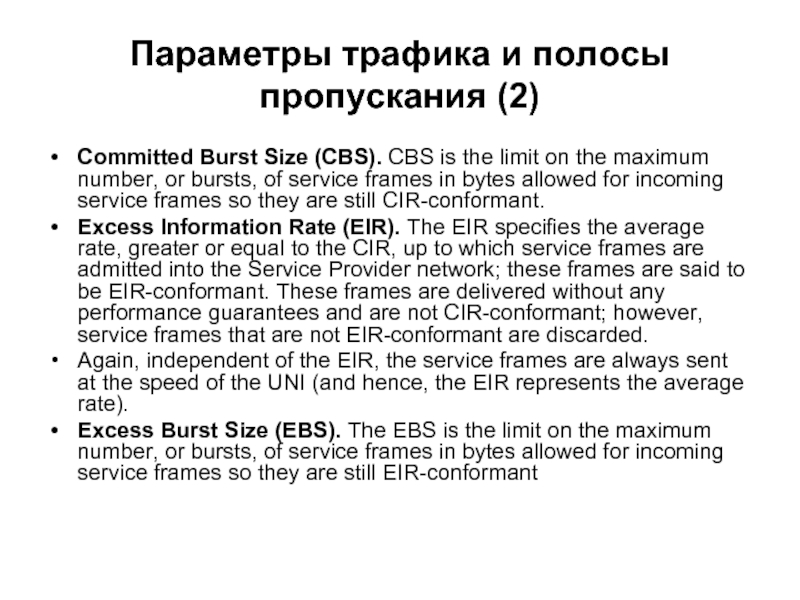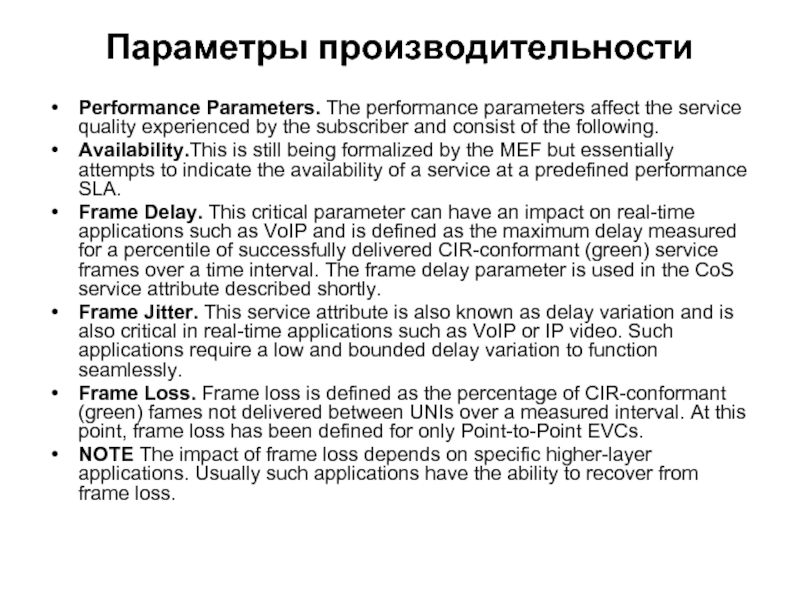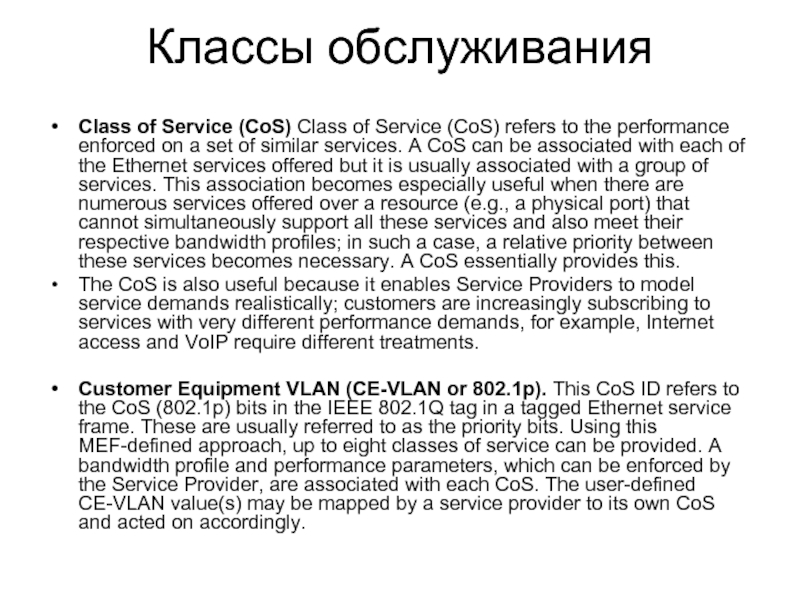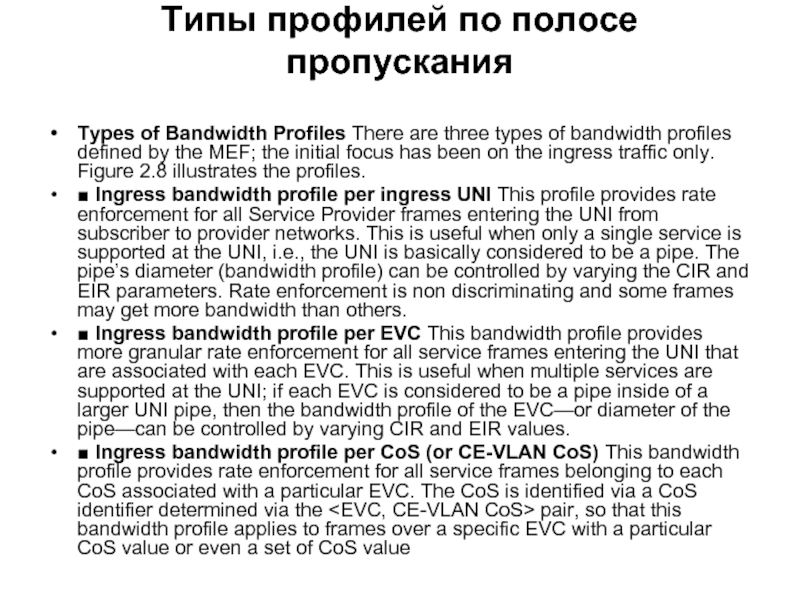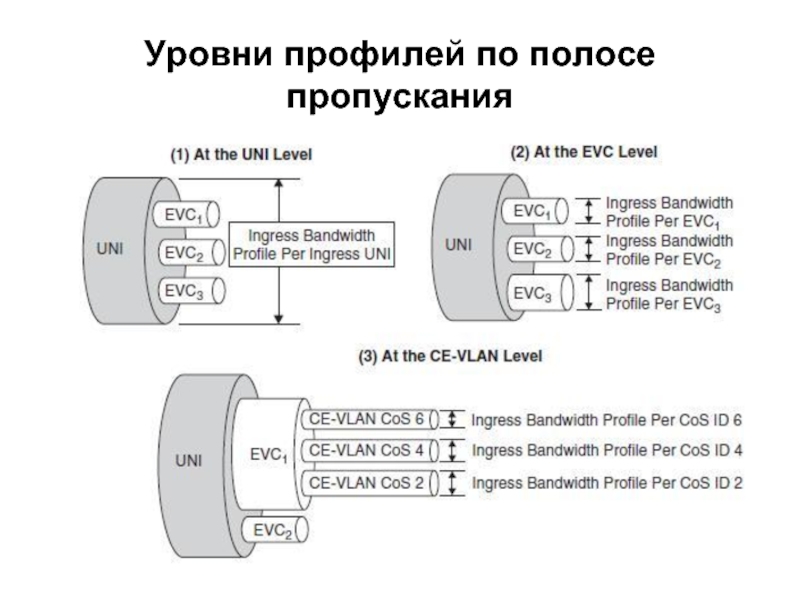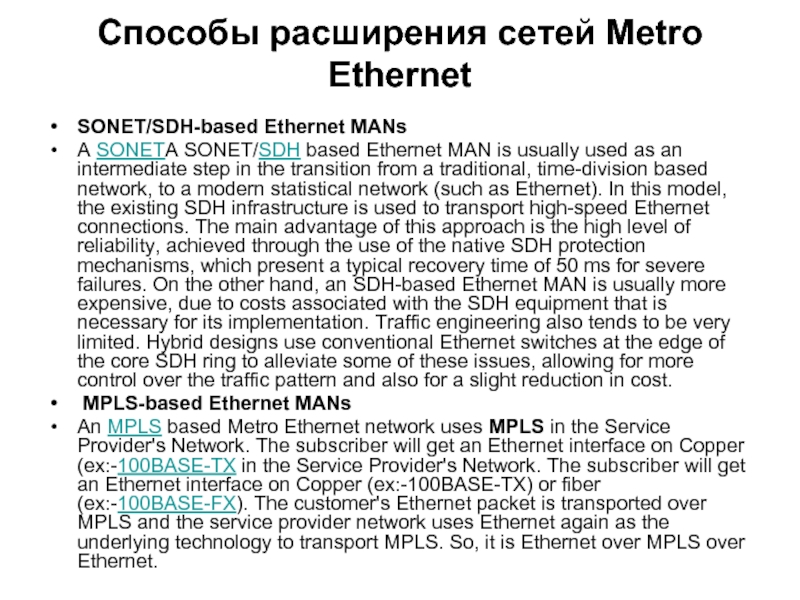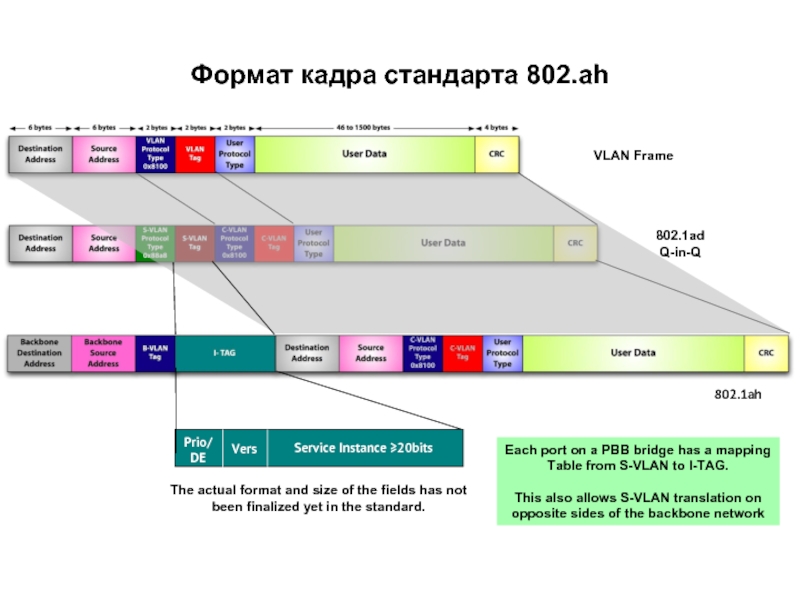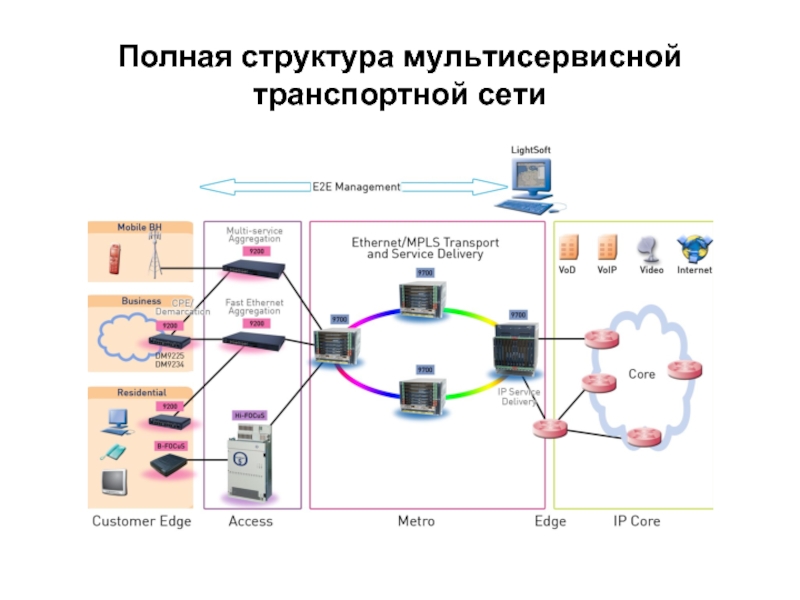- Главная
- Разное
- Дизайн
- Бизнес и предпринимательство
- Аналитика
- Образование
- Развлечения
- Красота и здоровье
- Финансы
- Государство
- Путешествия
- Спорт
- Недвижимость
- Армия
- Графика
- Культурология
- Еда и кулинария
- Лингвистика
- Английский язык
- Астрономия
- Алгебра
- Биология
- География
- Детские презентации
- Информатика
- История
- Литература
- Маркетинг
- Математика
- Медицина
- Менеджмент
- Музыка
- МХК
- Немецкий язык
- ОБЖ
- Обществознание
- Окружающий мир
- Педагогика
- Русский язык
- Технология
- Физика
- Философия
- Химия
- Шаблоны, картинки для презентаций
- Экология
- Экономика
- Юриспруденция
Технология Ethernet для сетей доступа и транспорта презентация
Содержание
- 1. Технология Ethernet для сетей доступа и транспорта
- 2. Содержание 1. Технология Ethernet 2. Виртуальные локальные
- 3. Технология Ethernet: уровни BRM OSI
- 4. Топологии соединений и сетей Ethernet Star Structure Bus Structure Point-to-Point Structure
- 5. Коллизии и их преодоления Большое
- 6. Hub operation 1. NIC sends a
- 7. Организация дуплексных связей Преимущества дуплексного режима:
- 8. Стандарты Ethernet и Fast Ethernet
- 9. Стандарты Fast Ethernet и Gigabit Ethernet
- 10. Уровень звена данных Ethernet: форматы кадров
- 11. Общий формат кадров SFD Fixed
- 12. Формат кадра Ethernet по IEEE 802.3
- 13. Сравнение форматов Data Source add
- 14. Кодирование поля «тип» DA SA Type
- 15. Правила формирования полей «длина» и «тип» Ethernet
- 16. Формат кадра с заголовком 802.2 LLC Defining
- 17. SNAP Формат заголовка IIEE 802.3 SNAP
- 18. Формат кадра с заголовками 802.2 LLC/ 802.3
- 19. Варианты инкапсуляции IP пакета 0800
- 20. Gigabit Ethernet Frame Format Data Source
- 21. Адресация данных в LAN
- 22. Коммутация по физическим адресам В
- 23. Три процедуры при коммутации пакетов Изучение
- 24. How Switches Learn Host Locations
- 25. How Switches Learn Hosts Locations
- 26. How Switches Learn Host Locations
- 27. How Switches Filter Frames Switch
- 28. Broadcast and Multicast Frames
- 29. Ethernet: организация виртуальных локальных сетей (VLAN)
- 30. VLAN = Broadcast Domain = Logical
- 31. Определение VLAN Virtual Local Area Network
- 32. Преимущества VLAN Performance VLANs free up
- 33. Способы организации VLAN VLAN can be distinguished
- 34. VLAN 1 уровня: по порту подключения Membership
- 35. VLAN 2 уровня: по MACадресу Membership
- 36. VLAN 3 уровня: по маске подсети
- 37. Формат кадра Q-VLAN tag (IEEE 802.1Q) Also
- 38. Формат кадра Q-VLAN tag (IEEE 802.1Q) Also
- 39. Базовые понятия процесса пересылки Ingress Towards the
- 40. Процесс пересылки по 802.1Q Ingress
- 41. Tagged frame Ingress Rule
- 42. 3 3 2 Egress Port Static Static
- 43. Tagged frame Egress Rule
- 44. Работа коммутатора с одной меткой C-VID of
- 45. Структура коммутатора для стека меток Single
- 46. Коммутатор провайдерского класса с одной меткой(1) S-VID
- 47. Коммутатор провайдерского класса с одной меткой(2) An
- 48. Стекирование VLAN IEEE 802.1ad Certain vendors apply
- 49. Формат S-метки Q-in-Q VLAN Not standardized
- 50. Коммутатор провайдерского класса с двумя метками We
- 51. Структура сети METRO Ethernet Two types
- 52. Сравнительная характеристика LAN и MAN сетей
- 53. Структура Carrier Ethernet
- 54. Определение Carrier Ethernet: A Formal Definition The
- 55. Стандартизация Carrier Ethernet
- 56. Общие требования к сервисам ■ Ubiquity Carrier
- 57. Модель Ethernet сервисов
- 58. Типы Ethernet сервисов Ethernet Service Types
- 59. Сервис E-Line Ethernet Line (E-LINE) Service Any
- 60. Сервис E-LAN Ethernet LAN (E-LAN) Service Any
- 61. Определение характеристик Ethernet сервисов
- 62. Параметры UNI Ethernet Physical Interface. At
- 63. Параметры трафика и полосы пропускания (1)
- 64. Параметры трафика и полосы пропускания (2) Committed
- 65. Параметры производительности Performance Parameters. The performance parameters
- 66. Классы обслуживания Class of Service (CoS) Class
- 67. Типы профилей по полосе пропускания Types of
- 68. Уровни профилей по полосе пропускания
- 69. Способы расширения сетей Metro Ethernet SONET/SDH-based Ethernet
- 70. Формат кадра стандарта 802.ah VLAN Frame
- 71. Полная структура мультисервисной транспортной сети
Слайд 2Содержание
1. Технология Ethernet
2. Виртуальные локальные сети VLAN
3. Технология Carrier Ethernet для
4. Принципы построения Metro Ethernet
Слайд 3Технология Ethernet: уровни BRM OSI
Data Link
Physical
Ethernet
802.2
802.3
Physical (PHY)
Media Access (MAC)
MAC-client (LLC)
Слайд 5Коллизии и их преодоления
Большое количество рабочих станций порождает большое число коллизий
Для преодоления коллизий используется алгоритм CSMA/CD.
Слайд 6Hub operation
1. NIC sends a frame.
2.The NIC loops the sent frame
3. The hub receives the frame.
4. The hub sends the frame across an internal bus
5. The hub repeats the signal from each pair to all other devices.
Слайд 7Организация дуплексных связей
Преимущества дуплексного режима:
Коллизии не возникают.
Отсутствует задержка
Скорость 10 Mbps доступна для каждой станции.
Слайд 11Общий формат кадров
SFD
Fixed sequence to alert the receiver
DA
Destination MAC address
SA
Source MAC address
XXX
FCS
Frame Check Sequence, CRC
7B
1B
6B
6B
4B
pre-
amble
Слайд 12Формат кадра Ethernet по IEEE 802.3
Based on type or
Frame length (<=1500) or
type information (>=1536)
DA
SA
Length or
Type
XXX
Data Link Header
FCS
Frame size : Min 64 bytes , Max 1518 bytes
2B
6B
6B
4B
Слайд 13Сравнение форматов
Data
Source add
FCS
Length
Dest add
46-1500
2
6
6
4
0000.0C xx.xxxx
Vendor assigned
IEEE assigned
802.3
Preamble
MAC
7
# Bytes
SFD
1
Data
Source add
FCS
Type
Dest add
46-1500
2
6
6
4
Preamble
8
# Bytes
Ethernet
Слайд 14Кодирование поля «тип»
DA
SA
Type
P A Y L O A D (46–1500 Bytes)
0806
ARP
PAD
(18 Bytes)
0x0800=IP
0x0806 = ARP
0x8035 = RARP
0x888E = 802.1X
0x8863=PPPoE Control frames
0x8864 = PPPoE Data frames
TYPE >= 1536
Data Link Header
FCS
2B
6B
6B
4B
Слайд 15Правила формирования полей «длина» и «тип»
Ethernet version 2 (Xerox) MAC frame
has Ethertype field
indicates which protocol is inside the data section
Value always > 05-DC hex.
802.3 has a Length or Type field
if < 05-DC IEEE802.3 Length field
if >= 05-DC IEEE802.3 Type field
Type field gives a protocol identification (same as Ethertype)
802.3 incorporates aspects of Ethernet version 2 and will replace it for high-speed Ethernet networks
Ethernet v2 is a valid 802.3 frame
Слайд 16Формат кадра с заголовком 802.2 LLC
Defining Service Access Points (SAPs)
SAPs
TCP/IP talks to TCP/IP, IPX/SPX talks to IPX/SPX,…
Destination SAP/Source SAP
DA
SA
length
P A Y L O A D (43–1497 Bytes)
DSAP
1B
SSAP
1B
CONTR
1B
802.2 LLC
02 = Individual LLC Sublayer Management Function
03 = Group LLC Sublayer Management Function
04 = IBM SNA Path Control (individual)
05 = IBM SNA Path Control (group)
06 = ARPANET Internet Protocol (IP)
AA = SubNetwork Access Protocl (SNAP)
E0 = Novell NetWare
F0 = IBM NetBIOS
Data Link Header
FCS
Frame size : Min 64 bytes , Max 1518 bytes
Слайд 17
SNAP
Формат заголовка IIEE 802.3 SNAP
Due to growing number of applications using
Introduction of the IEEE 802.3 Sub Network Access Protocol (SNAP) header
SSAP=H’AA, DSAP=H’AA indicates that a SNAP-header is used
AA
1B
AA
1B
03
1B
00-00-00
3B
TYPE
2B
Слайд 18Формат кадра с заголовками 802.2 LLC/ 802.3 SNAP header
Type field provides
P A Y L O A D
(38–1492 Bytes)
DA
SA
length
AA
1B
00.00.00
3B
Type
2B
0x0800=IP
0x0806 = ARP
0x8035 = RARP
0x888E = 802.1X
0x8863=PPPoE Control frames
0x8864 = PPPoE Data frames
TYPE
Data Link Header
FCS
Frame size : Min 64 bytes , Max 1518 bytes
Слайд 19Варианты инкапсуляции IP пакета
0800
IP datagram
Preamble
(8 bytes)
Destination
Address
(6 bytes)
Source
Address
(6 bytes)
FCS
(4)
Length
(2 bytes)
IP datagram
Preamble
(8 bytes)
Destination
Address
(6 bytes)
Source
Address
(6 bytes)
06
06
LSAP
Length
(2 bytes)
Preamble
(8 bytes)
Destination
Address
(6 bytes)
Source
Address
(6 bytes)
AA
LSAP
AA
03
00.00.00
08.00
IP
datagram
FCS
(4)
FCS
(4)
SNAP
ETHERNET II
IEEE 802.3/ IEEE 802.2 LLC
IEEE 802.3/ IEEE 802.2 LLC/SNAP
3 Byte
5 Byte
Слайд 20Gigabit Ethernet Frame Format
Data
Source add
FCS
Length
Dest add
46-1500
2
6
6
4
802.3z
Preamble
7
# Bytes
SFD
1
Extension*
416 bytes for 1000Base-X
520 bytes
* Поле кадра «extension» автоматически отбрасывается во время обработки кадра Gigabit Ethernet.
Слайд 21Адресация данных в LAN
Unicast
Binary: 00110101 01111011 00010010 00000000 00000000
Hex: AC-DE-48-00-00-80
Multicast
Binary: 10000000 00000000 00000101 10101010 01000100 00000001
Hex: 01-00-C0-55-22-80
Broadcast
Binary: 11111111 11111111 11111111 11111111 11111111 11111111
Hex: FF-FF-FF-FF-FF-FF
Individual/Group Address bit
Individual/Group Address bit
Слайд 22Коммутация по физическим адресам
В каждом сегменте могут возникать свои собственные
В режиме broadcast коммутатор рассылает пакеты всем приемникам
Memory
Switch
Слайд 23Три процедуры при коммутации пакетов
Изучение адресов уровня звена данных.
Решение о выборе
Исключение петель в маршруте соединения.
Слайд 24How Switches Learn Host Locations
В начале инсталляции сети таблица MAC
MAC address table
0260.8c01.1111
0260.8c01.2222
0260.8c01.3333
0260.8c01.4444
E0
E1
E2
E3
A
B
C
D
Слайд 25How Switches Learn Hosts Locations
Станция A передает кадр станции C. В
Switch читает MAC адрес станции A, как адрес отправителя данных, получая от нее кадр из порта E0 и заносит его в таблицу коммутации.
Поскольку в таблице еще нет адреса станции C, то Switch в режиме broadcast рассылает всем приемникам кадр, в котором просит сообщить их свои MAC адреса.
MAC address table
0260.8c01.1111
0260.8c01.2222
0260.8c01.3333
0260.8c01.4444
E0: 0260.8c01.1111
E0
E1
E2
E3
D
C
B
A
Слайд 26How Switches Learn Host Locations
Станция D посылает кадр со своим MAC
Аналогично станция B посылает кадр со своим MAC адресом и Switch также заносит этот адрес в таблицу коммутации.
Наконец станция С посылает кадр со своим MAC адресом, Switch заносит этот адрес в таблицу коммутации и обнаруживает требуемый адрес приемника данных от станции A.
MAC address table
0260.8c01.1111
0260.8c01.2222
0260.8c01.3333
0260.8c01.4444
E0: 0260.8c01.1111
E3: 0260.8c01.4444
E0
E1
E2
E3
D
C
A
B
Слайд 27How Switches Filter Frames
Switch пересылает кадр, полученный от станции A из
Адрес пересылки оказался определенным, и кадр передан по назначению.
E0: 0260.8c01.1111
E2: 0260.8c01.2222
E1: 0260.8c01.3333
E3: 0260.8c01.4444
0260.8c01.1111
0260.8c01.2222
0260.8c01.3333
0260.8c01.4444
E0
E1
E2
E3
X
X
D
C
A
B
MAC address table
Слайд 28Broadcast and Multicast Frames
Станция D передает кадр в режиме broadcast, или
Switch распознает кадр, предназначенный для всеобщей рассылки, и отправляет его во все порты.
Кадр, предназначенный для многоадресной рассылки, рассылается в соответствии со списком адресов, содержащихся в этом кадре.
0260.8c01.1111
0260.8c01.2222
0260.8c01.3333
0260.8c01.4444
E0
E1
E2
E3
D
C
A
B
E0: 0260.8c01.1111
E2: 0260.8c01.2222
E1: 0260.8c01.3333
E3: 0260.8c01.4444
MAC address table
Слайд 30 VLAN = Broadcast Domain = Logical Network (Subnet)
Иллюстрация организации
Segmentation
Flexibility
Security
Слайд 31Определение VLAN
Virtual Local Area Network
VLAN
Used to separate the physical LAN
Logical broadcast / multicast domain
Virtual
Inter-VLAN communication: only via higher-layer devices (e.g. IP routers)
LAN membership defined by the network manager
Virtual
Corporate LAN
Слайд 32Преимущества VLAN
Performance
VLANs free up bandwidth by limiting traffic.
Formation of Virtual
Users and resources that communicate frequently with each other can be grouped into a VLAN, regardless of physical location.
Simplified Administration
Adding or moving nodes => can be dealt with quickly and conveniently from the management console rather than the wiring closet
Reduced Cost
Use of VLANs can eliminate the need for expensive routers
With a VLAN-enabled adapter, a server can be a member of multiple VLANs.
Security
VLANs create virtual boundaries that can only be crossed through a router.
Слайд 33Способы организации VLAN
VLAN can be distinguished by the method used to
Implicit
Explicit
VLAN membership can be classified by
Port,
Protocol type
MAC address
IP address
IEEE 802.1Q
Explicit
802.1Q tag
Implicit
Port based
Port and Protocol based
Слайд 34VLAN 1 уровня: по порту подключения
Membership in a VLAN is defined
Also refered to as Port switching
Does not allow user mobility
Does not allow multiple VLANs to include the same physical segment (or switch port)
Слайд 35 VLAN 2 уровня: по MACадресу
Membership in a VLAN is based
The switch tracks the MAC addresses which belong to each VLAN
Provides full user movement
Clients and server always on the same LAN regardless of location
Disadvantages
Too many addresses need to be entered and managed
Notebook PCs change docking stations
MAC@A
MAC@B
MAC@C
MAC@D
Слайд 36 VLAN 3 уровня: по маске подсети IP
The network IP
IP@: 138.22.24.5
IP@: 138.21.35.47
IP@: 138.21.35.58
IP@: 138.22.24.10
Слайд 37Формат кадра Q-VLAN tag (IEEE 802.1Q)
Also referred to as C-VLAN tag
Customer
VLAN Bridge
Q-VLAN aware bridge
comprising a single Q-VLAN component
SFD
pre-
amble
DA
SA
length
type
P A Y L O A D (46–1500 Bytes)
FCS
TPID
TCI
Frame size : Min 68 bytes , Max 1522 bytes
2 bytes
2 bytes
3 bits
12 bits
Priority ”p-bits” (802.1p)
# 8
Vlan_ID ”Q-TAG” (802.1Q)
# 4096
CFI
Tag protocol Identifier
Слайд 38Формат кадра Q-VLAN tag (IEEE 802.1Q)
Also referred to as C-VLAN tag
Customer
VLAN Bridge
Q-VLAN aware bridge
comprising a single Q-VLAN component
SFD
pre-
amble
DA
SA
length
type
P A Y L O A D (46–1500 Bytes)
FCS
TPID
TCI
Frame size : Min 68 bytes , Max 1522 bytes
2 bytes
2 bytes
3 bits
12 bits
Priority ”p-bits” (802.1p)
# 8
Vlan_ID ”Q-TAG” (802.1Q)
# 4096
CFI
Tag protocol Identifier
Слайд 39Базовые понятия процесса пересылки
Ingress
Towards the forwarding Engine
Egress
Out of the forwarding engine
Upstream
From user to network
Downstream
From network to user
Forwarding engine
End-user
Ethernet
port
End-user
Ingress
Egress
Downstream
Upstream
Слайд 40
Процесс пересылки по 802.1Q
Ingress Rule
Classify the received frames belonging
Forwarding Process
Decide to filter or forward the frame
Egress Rule
Decide if the frames must be sent tagged or untagged
Слайд 41
Tagged frame
Ingress Rule
VID
Untagged frame
Tagged frame
VID
Tagged frame
PVID
Правила входа
VLAN-aware switch can accept tagged
Tagged frame:
is directly sent to the forwarding engine
Untagged frame:
A tag is added onto this untagged frame (with the PVID)
Then the tagged frame is sent to the forwarding engine
PVID
Default Port VLAN ID for incoming untagged frames
Towards
Forwarding
Process
Слайд 423
3
2
Egress
Port
Static
Static
Static
Register
Untag
100
Tag
1
Untag
1
Egress frame type
VID
10
3
2
2
Port
30
00:A0:C5:33:33:33
100
00:A0:C5:44:44:44
20
00:A0:C5:22:22:22
0
00:A0:C5:11:11:11
Aging
MAC Address
MAC Table
VLAN Table
Процесс пересылки
Forwarding decision is
Filtering database contains two tables.
- MAC table and VLAN table
First, check destination MAC address based on the MAC table
Second, check the VLAN ID based on the VLAN table
Egress port is the allowed outgoing member port of VLAN
Filtering Database
Слайд 44Работа коммутатора с одной меткой
C-VID of incoming frames is determined:
If TAG
If TAG is not present,
* port and protocol are used for VLAN ID classification.
* else, the default VLAN ID for that port is used (PVID);
Outgoing frame may carry C-TAG or not, depending on egress rule.
VLAN tag added by CPE
= Q/C-VLAN tag
Слайд 45
Структура коммутатора для стека меток
Single VLAN tag:
Only 4094 VIDs ⇨ Scalability
Inroduction of second VLAN tag (IEEE 802.1ad):
Servider Provider tag: S-TAG
Service Provider Bridge:
S-tag treatment
Provider Edge Bridge: C-tag & S-tag treatment
Customer Bridge:
C-tag treatment
DA
SA
length
type
P A Y L O A D
FCS
S-TAG
C-TAG
Слайд 46Коммутатор провайдерского класса с одной меткой(1)
S-VID of incoming frames is defined:
If
If S-TAG is not present,
Same rules as for C-TAG in VLAN bridge.
Incoming frame is forwarded according to forwarding information base associated with the S-VLAN.
Outgoing frame may carry S-TAG or not (egress rule).
C-VLAN aware Bridge
Provider
Edge Port
Internal
EISS
S-VLAN aware Bridge
Customer
NW Port
Provider
NW Port
Customer
NW Port
= S-VLAN tag
Слайд 47Коммутатор провайдерского класса с одной меткой(2)
An incoming frame on a provider
Incoming frame is forwarded according to forwarding information base associated with respectively the C-VLAN / S-VLAN to which the frame belongs.
Outgoing frame may carry S-TAG or not (egress rule)
C-VLAN aware bridge
Provider
Edge Port
Internal
EISS
S-VLAN aware bridge
Customer
NW Port
Provider
NW Port
Customer
NW Port
e.g. Outgoing port supports only tagged
Слайд 48Стекирование VLAN
IEEE 802.1ad
Certain vendors apply today 1Q-in-Q VLAN Tag
like Alcatel,…
SFD
pre-
amble
DA
SA
length
type
P
FCS
TPID
TCI
Single VLAN tag
Frame size : Min 68 bytes , Max 1522 bytes
SFD
pre-
amble
DA
SA
length
type
P A Y L O A D (46–1500 Bytes)
FCS
TPID
TCI
Dual VLAN tag”
(“Vlan stacking”)
Frame size : Min 72 bytes , Max TBD
TPID
TCI
S-Vlan
C-Vlan
2 bytes
2 bytes
Слайд 49Формат S-метки
Q-in-Q VLAN
Not standardized
The second VLAN tag protocol identifier is
SFD
pre-
amble
DA
SA
length
type
P A Y L O A D (46–1500 Bytes)
FCS
TPID
TCI
Dual VLAN tag”
(“Vlan stacking”)
Frame size : Min 72 bytes , Max 1526 bytes
TPID
TCI
S-Vlan
C-Vlan
2 bytes
2 bytes
3 bits
12 bits
Priority ”p-bits” (802.1p)
# 8
Vlan_ID ”Q-TAG” (802.1Q)
# 4096
CFI
Tag protocol Identifier
Слайд 50Коммутатор провайдерского класса с двумя метками
We now have two tags
The S-TAG
A Provider Bridge ignores C-tags, except on Provider Edge Ports
VLAN-stacking can occur even if the incoming frame is untagged (at provider edge port).
C-VLAN aware bridge
Provider
Edge Port
Internal
EISS
S-VLAN aware bridge
Customer
NW Port
Provider
NW Port
Customer
NW Port
= Q/C-VLAN tag
= S-VLAN tag
Слайд 51Структура сети METRO Ethernet
Two types of Provider Bridges.
- Provider
- Provider Bridge can encapsulate C-VLANs but cannot switch on them.
Слайд 54Определение
Carrier Ethernet: A Formal Definition
The MEF1 has defined Carrier Ethernet as
1. Standardized services
2. Scalability
3. Reliability
4. Quality of Service (QoS)
5. Service management OAM
Слайд 56Общие требования к сервисам
■ Ubiquity Carrier Ethernet enables ubiquitous Ethernet services
.■ Ethernet Services Carrier Ethernet supports two types of services: Point-to-Point (also referred to as Ethernet Line or E-LINE) and multipoint-to-multipoint Ethernet LAN (referred to as E-LAN) Ethernet services. These services are discussed in greater detail later in the chapter and are expected to provide the basis for all Ethernet services.
■ Circuit Emulation Services (CES) Carrier Ethernet supports not only Ethernet-based services delivered across different transport technologies but also other (TDM) services transported over Carrier Ethernet itself. As noted previously, TDM services still remain an overwhelming contributor to Service Provider revenues and realistically need to be supported (and delivered over a converged Ethernet-based infrastructure). TDM-based voice applications especially need to be accommodated and characteristics of such applications such as synchronization and signaling need to be emulated.
■ Granularity and Quality of Services (QoS) The services supported by Carrier Ethernet provide a wide choice and granularity of bandwidth and quality of service options. This flexibility is vital in Service Provider networks with its multitude of end users, each with slightly different application requirements and, typically, operating equipment from multiple vendors. QoS capability is crucial to enforcing the deterministic behavior of Carrier Ethernet.
■ Converged transport Supports convergence of voice, data, and video services over a unified (Ethernet) transport and greatly simplifies the delivery, management, and addition of such services. Basically, all enterprise services and applications are now supported over a single Ethernet “pipe”.
Слайд 58Типы Ethernet сервисов
Ethernet Service Types
The Ethernet service type is essentially a
■ Ethernet Line (E-LINE)
■ Ethernet LAN (E-LAN)
■ Ethernet Tree (E-Tree)
Слайд 59Сервис E-Line
Ethernet Line (E-LINE) Service Any Ethernet service that is based
Слайд 60Сервис E-LAN
Ethernet LAN (E-LAN) Service Any Ethernet service that is based
Слайд 62Параметры UNI
Ethernet Physical Interface. At the UNI, the Ethernet physical
Physical Medium. This UNI service attribute specifies the physical interface defined by the IEEE 802.3-2000 standard. Examples are 10BaseT, 100BaseSX, 1000BaseLX, and so on.
Speed. This UNI service attribute specifies the standard Ethernet speed—either 10 Mbps, 100 Mbps, 1 Gbps, or 10 Gbps.
Mode. This UNI service attribute specifies whether the UNI supports full or half duplex and can provide auto-negotiation.
MAC Layer. This UNI service attribute specifies which MAC layer is supported, i.e., as specified in the IEEE 802.3-2002.
Слайд 63Параметры трафика и полосы пропускания (1)
Bandwidth Profile Traffic Parameters. A Bandwidth
Bandwidth Profile =
Committed Information Rate (CIR). CIR is the average rate up to which service frames are delivered as per the performance objectives (such as delay, loss, etc.) associated with the service; these service frames are referred to as being CIR-conformant.The CIR value is always less than or equal to the UNI speed and basically guarantees that the specified amount of bandwidth (or service frames) will be delivered according to a predetermined performance level. A CIR of zero indicates the service has neither bandwidth nor performance guarantees.
NOTE Independent of the CIR, the service frames are always sent at UNI speed.
Слайд 64Параметры трафика и полосы пропускания (2)
Committed Burst Size (CBS). CBS is
Excess Information Rate (EIR). The EIR specifies the average rate, greater or equal to the CIR, up to which service frames are admitted into the Service Provider network; these frames are said to be EIR-conformant. These frames are delivered without any performance guarantees and are not CIR-conformant; however, service frames that are not EIR-conformant are discarded.
Again, independent of the EIR, the service frames are always sent at the speed of the UNI (and hence, the EIR represents the average rate).
Excess Burst Size (EBS). The EBS is the limit on the maximum number, or bursts, of service frames in bytes allowed for incoming service frames so they are still EIR-conformant
Слайд 65Параметры производительности
Performance Parameters. The performance parameters affect the service quality experienced
Availability.This is still being formalized by the MEF but essentially attempts to indicate the availability of a service at a predefined performance SLA.
Frame Delay. This critical parameter can have an impact on real-time applications such as VoIP and is defined as the maximum delay measured for a percentile of successfully delivered CIR-conformant (green) service frames over a time interval. The frame delay parameter is used in the CoS service attribute described shortly.
Frame Jitter. This service attribute is also known as delay variation and is also critical in real-time applications such as VoIP or IP video. Such applications require a low and bounded delay variation to function seamlessly.
Frame Loss. Frame loss is defined as the percentage of CIR-conformant (green) fames not delivered between UNIs over a measured interval. At this point, frame loss has been defined for only Point-to-Point EVCs.
NOTE The impact of frame loss depends on specific higher-layer applications. Usually such applications have the ability to recover from frame loss.
Слайд 66Классы обслуживания
Class of Service (CoS) Class of Service (CoS) refers to
The CoS is also useful because it enables Service Providers to model service demands realistically; customers are increasingly subscribing to services with very different performance demands, for example, Internet access and VoIP require different treatments.
Customer Equipment VLAN (CE-VLAN or 802.1p). This CoS ID refers to the CoS (802.1p) bits in the IEEE 802.1Q tag in a tagged Ethernet service frame. These are usually referred to as the priority bits. Using this MEF-defined approach, up to eight classes of service can be provided. A bandwidth profile and performance parameters, which can be enforced by the Service Provider, are associated with each CoS. The user-defined CE-VLAN value(s) may be mapped by a service provider to its own CoS and acted on accordingly.
Слайд 67Типы профилей по полосе пропускания
Types of Bandwidth Profiles There are three
■ Ingress bandwidth profile per ingress UNI This profile provides rate enforcement for all Service Provider frames entering the UNI from subscriber to provider networks. This is useful when only a single service is supported at the UNI, i.e., the UNI is basically considered to be a pipe. The pipe’s diameter (bandwidth profile) can be controlled by varying the CIR and EIR parameters. Rate enforcement is non discriminating and some frames may get more bandwidth than others.
■ Ingress bandwidth profile per EVC This bandwidth profile provides more granular rate enforcement for all service frames entering the UNI that are associated with each EVC. This is useful when multiple services are supported at the UNI; if each EVC is considered to be a pipe inside of a larger UNI pipe, then the bandwidth profile of the EVC—or diameter of the pipe—can be controlled by varying CIR and EIR values.
■ Ingress bandwidth profile per CoS (or CE-VLAN CoS) This bandwidth profile provides rate enforcement for all service frames belonging to each CoS associated with a particular EVC. The CoS is identified via a CoS identifier determined via the
Слайд 69Способы расширения сетей Metro Ethernet
SONET/SDH-based Ethernet MANs
A SONETA SONET/SDH based Ethernet
MPLS-based Ethernet MANs
An MPLS based Metro Ethernet network uses MPLS in the Service Provider's Network. The subscriber will get an Ethernet interface on Copper (ex:-100BASE-TX in the Service Provider's Network. The subscriber will get an Ethernet interface on Copper (ex:-100BASE-TX) or fiber (ex:-100BASE-FX). The customer's Ethernet packet is transported over MPLS and the service provider network uses Ethernet again as the underlying technology to transport MPLS. So, it is Ethernet over MPLS over Ethernet.
Слайд 70Формат кадра стандарта 802.ah
VLAN Frame
802.1ad
Q-in-Q
Prio/
DE
Vers
Service Instance ≥20bits
The actual format and size
Each port on a PBB bridge has a mapping
Table from S-VLAN to I-TAG.
This also allows S-VLAN translation on
opposite sides of the backbone network
802.1ah

